























BY MADELINE FENING, ROWAN HETZER AND ZURIE POPE
his election season has felt like running the Flying Pig. This marathon year of presidential politics has been full of twists, from President Joe Biden’s historic withdrawal from the race, to Donald Trump selecting Middletown’s JD Vance as his running mate. The renewed MAGA madness has also taken shape in more than one Trump-endorsed Ohio candidate.
OHIO SENATE RACE: SHERROD BROWN V.S. BERNIE MORENO
The tightest race on the ballot, Ohio’s U.S. Senate contest between Sherrod Brown (D) and Bernie Moreno (R), is not only expected to be close on the state level, but could also determine which political party controls the Senate.
The U.S. Senate currently has a tight 51 to 49-seat majority held by Democrats. With Democratic senators from other states opting not to run for re-election, there is a risk that even one incumbent Democratic senator losing could allow Republicans to take control of the Senate, making the stakes particularly high for the Democratic incumbents in tight races, including Ohio’s Sen. Brown.
Current Ohio polls show the two candidates in a tight race.
Issue 1 on Ohio’s 2024 ballot proposes a constitutional reform to address gerrymandering and its impact on the state. Since the concept’s first usage in 1812, states like Ohio have faced the effects of gerrymandering, where biased redistricting manipulates electoral boundaries and dilutes voters’ influence on election outcomes.
The ballot proposal includes plans to create an independent process for drawing congressional and state legislative district lines by establishing the Ohio Citizens Redistricting Commission, a 15-member bipartisan board responsible for adopting redistricting plans transparently. It would require districts to be drawn fairly and impartially, making it unconstitutional to favor any political party or individual politician.
Ohio’s Supreme Court races this year could also shift partisan control and redefine the court’s influence for years to come.
Incumbent Justice Michael P. Donnelly (D) faces Judge Megan Shanahan (R), while Justice Melody Stewart (D) is challenged by Justice Joseph Deters (R), who opted to run against her instead of seeking a partial term for his current seat. Candidates Lisa Forbes (D) and Dan Hawkins (R) are competing for Deters’ open seat. If all three Republican candidates win, they would strengthen their control to a 6-1 majority, a dominance that has existed in the court since 1986.
Presidential election years put a lot on voters’ plate, making it easy to overlook the smaller local races that still greatly impact our lives. CityBeat’s fall news interns, Rowan Hetzer and Zurie Pope, identified five local races to consider before hitting the polls on Tuesday, Nov. 5.
“AT THE END OF THE DAY, SOMEBODY HAS TO DO IT.”
BY ZURIE POPE
ince being elected in November of 2020, Ohio House Republican Jennifer Gross (R-West Chester) has remained undefeated. Gross held a 27-point lead over her Democratic opponent Chuck Horn on election night in 2020 and was comfortably reelected in 2022 with 66.2% of the vote.
Since then, Rep. Gross has built quite a reputation in the Ohio Statehouse. She championed anti-vaccine legislation, advocated for giving the legislature sole authority over interpreting Ohio’s abortion amendment and sought to eradicate the commercial activity tax.
Formerly represented by George Lang, House District 45 is located in the solidly Republican Butler County, which has only once voted for a Democratic presidential candidate in the past 70 years. Locally, a Democrat hasn’t been elected to a General Assembly seat in Butler County since 1970.
Landon Meador is a 23-year-old recent graduate of Northern Kentucky University hoping to break that trend as the Democratic candidate running against Jennifer Gross in November. CityBeat sat down with Meador to talk about his goals for strengthening small businesses, capping tuition costs for healthcare workers and making state politics more transparent.
This interview has been edited for length and clarity.
CityBeat: Could you talk a little bit about your background in West Chester — what your life growing up was like and how you became interested in politics?
Landon Meador: I came from a very modest family. My family’s originally from Athens, Ohio, out in the farms. And growing up, I was a very shy kid. I did not care to talk to people. I’d rather just keep to myself. Once I got to middle school, I really started coming out of that shell. And that was actually when I had my own fight with mental health. I started talking to school therapists, some of the faculty. I started moving my circle outwards a little more. So once I got to high school, that’s where I really started taking a look into our community. I was one of the business managers for our school publication,

called Spark. I wanted to be able to hear people’s stories. Then, as a presidential ambassador for the president of NKU, I was really working with incoming families and donors, seeing both sides there.
CB: You’ve described Jennifer Gross and the Republican majority as extreme. Could you talk a little bit about the policies and ideas that both Gross and the majority of the past few years have supported that you consider to be extreme?
LM: I think it is dangerous to assume that this is a joke from Jennifer Gross. I think that’s a dangerous mentality. We spent a lot of time fighting back against Critical Race Theory and Diversity, Equity and Inclusion programs — “witch hunts” – that went through our local schools. There was a lot of money spent and nothing was ever found. Jennifer has posted that she was hearing in Springfield that people are eating cats and abusing children, and that’s not true either. I try to really think of that as the fringe right. I don’t think those views make up conservatives. I really don’t. I think the most extreme thing that we can see in this election is not just one single issue, it’s that Jennifer Gross has skated by for four years without ever standing for anything besides just whining in the background about issues that don’t exist.
CB: You’ve called yourself the anticorruption candidate. If you were to be elected, you would be one state representative in the minority caucus of the State House. How do you intend to address the issue of corruption — the issue of large money influencing Ohio politics?
LM: First, the Public Utilities Commission is appointed by the governor. I think the first thing that we have to do is we have to put real people in these positions, because no one on a Public Utilities Commission would have approved a bribery scandal if they weren’t working with the governor. I think we have to cut back on dark money in the state. We have to require disclosures for anyone making political contributions, whether it’s a business or an individual. The money has to be able to be traced.
CB: Could you talk about your economic vision? How does it compare to Jennifer Gross’ economic vision?
LM: The best way to have the best state you can have is through strong business. I’ve been endorsed by a ton of different unions. I think we have to make sure that our workers are treated respectfully, that they are paid fairly. But then I think we need to get innovative. We have a shortage of healthcare workers in this
state. I would love to see capping tuition costs for healthcare workers in the state to $6-7,000 a semester. You keep them in the state and offer immediate job placement right after. I also think on the other side of that is small businesses. It is insanely hard to compete right now –how do we relieve the stress of being able to purchase a building to pay your workers, to be able to pay all the overhead? Does that look like a small business rebate? How do we bring new businesses into the state? I think there’s definitely a tax option there.
CB: If you lose the election in November, what do you want your campaign legacy to mean for young people?
LM: If you have ideas and a commitment to the area, and a flame in your heart to help people, run for office. A lot of people in this community know me. I think they’ve watched my whole transition from being the shy kid in the back of the class to now running for office and being the Democratic nominee against Jennifer Gross. Anyone can do it, and Ohio is worth fighting for. Do not let your state leave you behind.
CityBeat reached out to Jennifer Gross for an interview, but did not receive a response by the time of publication.

BY ZURIE POPE
t’s impossible to discuss Ohio politics without mentioning gerrymandering. Since Republican lawmakers rewrote the district maps in 2011, giving themselves a comfortable majority, hyper-partisan gerrymandering has become a growing concern. According to the Brennan Center, 77 percent of Ohio’s population lives in districts where the election for state representative lacks electoral competition. Of those, half featured no primary contest. Redistricting maps drawn by the Ohio Redistricting Commission have been declared unconstitutional — and have been rejected — by the state Supreme Court on several occasions.
CityBeat spoke with State Rep. Dani Isaacsohn (D-Cincinnati) about this electoral reality, his re-election campaign against Republican challenger John Sess and more.
The interview has been edited for length and clarity.
CityBeat: You’re a Democrat — a member of the minority caucus in a statehouse controlled by Republicans. Could you talk about what bipartisanship looks like in an environment like that?
Dani Isaacsohn: I’ve worked really hard on the bills that I’ve introduced to find bipartisan, Republican sponsors. So I’ve introduced multiple property tax reform
bills that are bipartisan. In fact, the most comprehensive property tax bills that have been introduced in this General Assembly have come from myself and Representative Thomas Hall. We introduced the only sweeping housing bill in the House that’s a bipartisan bill with Representative Adam Mathews and introduced the only bill that would address the issue of chronic absenteeism in this General Assembly with Bill Seitz. So I have tried on some of these major issues to find areas of agreement.
CB: Tell me more about the housing bill, and how you intend to continue working on the subject of affordable housing if re-elected.
DI: It’s based on the reality that we have a housing crisis at all levels. In almost every community, there’s just not enough places for people to live. That is true of apartments and big buildings. It’s true of single family homes. It’s true for renters, it’s true for owners. It’s true for young people and older people. And so we introduced a bill that is intended to transfer housing development at all levels, and it gives local governments the flexibility to identify the pro-housing policies that are the best fit for them. Representative Mathews and I represent very different types of districts. I represent urban Cincinnati, he represents suburban, but we crafted a bill that would allow local governments to choose the pro-household policies that make the
most sense and then provide state funds to incentivize the adoption and development of pro-household policies.
CB: There are two sections on your campaign website dedicated to education, one about K-12 education, and another about universal pre-k. Why is that an important issue for you?
DI: To me, there’s no more important issue and more fundamental issue for us to work on than how we are educating the next generation, and as a baseline principle for me, every kid in Ohio deserves a world class education. But at the moment, we are not providing to our public education system and we are under-investing. I have been focused on: how do we build a coalition across rural, Appalachian and urban districts, so that we can guarantee that the students that we are representing get the education they deserve? And so I organized the inaugural Urban Appalachian Education Summit to try and foster that coalition. Because while I’m proud we fought hard to get an historic increase in public education, there is still so much more to go.
CB: Ohio lawmakers have been in the news recently for targeting the LGBTQ+ community and anti-abortion measures. How much extremism do you see in the statehouse?
DI: The Ohio legislature is a clear example of what happens when a small group of
people have far too much power for far too long, and what they’ve done with that power is they’ve created a system where we have gerrymandered districts where voters actually don’t get to choose the politicians. Politicians choose their voters. And when you have a situation like that, it leads to political extremism. People running to the extremes, while most Ohioans are not in extremes. The only way we can get back to having a representative legislature is if we change the way we draw our legislative districts, which is why Issue 1 is so important.
CB: You worked as a legal intern for the Obama administration legal counsel, and as a field organizer for the Obama presidential campaign. How has that influenced your understanding of what it means to be an effective political leader?
DI: On the Obama campaign in particular, it just taught me the power and the value of bringing people together in their neighborhood for a common cause to make big change, and the principle that we need to listen and learn from people who live the issues every day. I need to listen to my constituents, what they need and what they’re going through. The two biggest costs for people across Ohio, certainly in my district, are housing and childcare. And so that has been my focus. How do we invest in our public education? It’s the job of the representative out in the community, learning from people, building


relationships with people and then doing the work in the legislature.
CB: What would you say to young Ohioans who feel pessimistic about the ability of their lawmakers to steer the state in a
positive direction?
DI: I have this conversation with young people regularly: voter registration. If we don’t show up, if people who care about others and the community don’t show up, all we’re doing is ceding power to folks
who are willing to serve special interests. I actually think it’s an incredible opportunity here in Ohio to change our future. We can change how things are going. We can do that in small ways. We have a responsibility and obligation to do it for the next generation. We need them. We’re counting on them.
CityBeat reached out to John Sess for an interview, but did not receive a response by the time of publication.
uring presidential elections, Ohio rarely makes national headlines anymore. Once considered a swing state, Ohio went to Trump in 2016 and 2020, and likely will again in 2024.
But in Southwest Ohio, a race is occurring that may decide which party controls the U.S. House.
Democratic incumbent Greg Landsman and Republican Orlando Sonza are campaigning to represent Ohio’s 1st Congressional District, which includes all of Cincinnati, Warren County and suburbs like Anderson Township, Indian Hill, Montgomery, Madeira and Blue Ash.
Landsman, who previously served on Cincinnati City Council for four years, is vying to hold the congressional seat he won against Republican Steve Chabot in 2022. Chabot held the seat every term, but one, since 1994. For the first time in decades, Ohio Democrats are fighting to hold this seat.
Sonza previously ran for the Ohio State Senate, losing to Democrat Catherine Ingram in District 9. He served as the Hamilton County Assistant prosecutor and an infantry officer in the army before launching his bid to challenge Landsman this summer.
“I decided to run for this congressional seat because I believe that the policy direction in which my opponent has taken our district and country is making life harder for everyday Americans,” wrote Sonza in an emailed statement to CityBeat. Sonza also spoke about the lessons he learned from his campaign against Ingram, writing about the importance of “engaging directly with voters, no matter who they are, and more importantly, understanding their needs,” and how it’s “deeply integral to what I learned a public servant should be.”
Republicans hold a slim majority in the House, and Democrats need only to win a handful of seats to retake control. In 25 of the 26 most competitive races, Democrats are raising more than their Republican
BY ZURIE POPE
opponents, according to the Washington Post.
The Cook Political Report rates the 1st Congressional District as “likely Democrat,” with numerous polls showing the same thing. Landsman has also outraised Sonza, receiving $3,412,96 from donors, compared to Sonza’s $864,409, according to OpenSecrets.
Campaign donations and lawmaker integrity have been recurring topics in this election.
“I don’t take corporate PAC money because I want you to know I’m with you, and not billionaires,” said Landsman in a campaign ad. In an emailed statement to CityBeat, Landsman wrote that congress should “pass the John Lewis Voting Rights Act so that we can ban dark money and end partisan gerrymandering across the country.”
In comparison, Sonza has criticized Landsman for failing to disclose his stock trades in a timely manner. On Aug. 8, Landsman reported 86 financial transactions from over a year-and-a-half timeline, putting him in violation of the STOCK Act, which imposes a 45-day deadline on members of Congress to report stock transactions.
“Forty six days, a mistake; 48 days a slip up; 20 months to fail to disclose that?” said Sonza during his final debate with Landsman on Oct. 16. “You are responsible for every dollar that goes into your piggy bank.”
Asked specifically about his stock trades during the debate, Landsman said, “It was late, and that was wrong, and I took responsibility.”
Landsman also insisted that he was moving away from trading stocks, instead prioritizing mutual funds.
In the same debate, Landsman argued that his opponent was beholden to big business.
“That’s one of the reasons why he doesn’t support negotiating lower prescription drug prices, it’s why he supports privatizing medicare. It’s one of the reasons
why he is all in on spending trillions for the super wealthy,” Landsman said.
Campaign finance reports filed with the Federal Election Commission show Sonza’s campaign has received $10,000 from Koch Inc., a political action committee (PAC) representing Koch Industries. His campaign has also received $343,288 in outside spending support from Americans for Prosperity Action, the super PAC of the conservative libertarian group Americans for Prosperity, which is an extension of the Koch family’s political operations.
Asked if he feared these contributions would make him beholden to the Kochs and their priorities if he were elected to office, Sonza told CityBeat he is “beholden to no one.”
Another issue mentioned throughout the campaign has been the Israel-Hamas war and the future of U.S. foreign policy.
Since Hamas’ terror attack on Oct. 7, which killed 1,200 Israelis and resulted in 251 Israelis being taken, the loss of life has continued. Over 42,000 people have been killed in Gaza, according to the Gaza Health Ministry. The war has expanded into Lebanon with the Israeli Defense Forces fighting Hezbollah. Meanwhile, Iran, which typically acts through proxies in the region, has begun launching missile strikes against Israel in retaliation for Israeli attacks on Iran-backed leaders and Iranian embassies.
“The war must end, every hostage must be returned home and the post-conflict work must be intense and sustained,”
Landsman, who is Jewish, told CityBeat “Israel must be secure, Gaza rebuilt, and self-determination by Palestinians in both Gaza and the West Bank must be realized.”
Sonza made a similar argument.
“As to the war in the Middle East, I believe the United States needs to supply our strongest ally in the region, Israel, with the resources they need to defend themselves and to bring the hostages home. Israel has every right to defend itself against terrorist organizations, and the United
States should not play the role of Israel for them.”
Regardless, both candidates have critiqued each other for their stances on the subject, and activists in Greater Cincinnati have not backed down on their critiques of U.S. involvement in the war.
Ohio State University, Case Western Reserve University, Oberlin College, Ohio University, Miami University and Denison University have all had campus protests.
Questioned about what message he has for campus protesters, Landsman said, “My intention is to continue to be a leader on this work, and be part of the generation of leaders that helps secure peace and stability in the Middle East.”
Landsman also noted that Sonza accepted an endorsement from Kiumars Kiani, a Cincinnati resident with a history of antisemitic remarks.
“Orlando Sonza proudly accepting and promoting an endorsement from an extremist, conspiracy theorist and antisemite is disturbing,” said Landsman in a statement to the Cincinnati Enquirer.
“Antisemitism in any form is wrong, and it has no place in our country, politics, or our college campuses,” Sonza wrote in a statement to CityBeat
Speaking before an audience of reporters and students at Xavier University for their final debate before the election, Landsman and Sonza made their final pitch to voters.
“Hopefully over this last year, through the course of this campaign, and including tonight, I earned your vote,” said Sonza. “A vote to restore integrity, duty, honor, country, accountability and real policy solutions that can work for all of us, not just some.”
“Since I’ve been in Congress, I set out to be transparent, accountable, reliable and bipartisan,” Landsman said. “Ultimately, I am for fixing politics. We need normal, pragmatic, reliable bipartisan leaders, and this is a moment where both the far left and the far right need to see people in the middle, leaders like me, stand up and say ‘we’re not doing this anymore.’”
BY ROWAN HETZER
hen people think of prosecutors, they often imagine hard-nosed attorneys in courtrooms relentlessly pursuing justice. In reality, the role of the Hamilton County Prosecutor goes beyond simply seeking convictions.
Individuals in this role must not only be dedicated to prosecuting crimes, but also to supporting victims and creating safer communities. They must be committed to balancing compassion, law and accountability, working to reduce violent crime and restore a sense of security to those impacted by it.
CityBeat spoke with incumbent Hamilton County Prosecutor Melissa Powers about her top priorities for improving the office, as well as her role in the highly publicized case involving Steve Raleigh and his family.
As she answered questions, Powers consistently emphasized the prosecutor’s primary responsibility: ensuring public safety for the well-being of the community.
This interview has been edited for length and clarity.
CityBeat: Why does this race matter to voters? Why should they care who the prosecutor is?
Melissa Powers: This race is important to the future of our county because public safety is on the ballot. You need experience to run this office. I want Cincinnati to be a safe place. I want not just my neighborhood safe, but everyone’s neighborhood safe.
CB: What are the top priorities that you want to push if you’re re-elected?
MP: Number one top priority is making sure that we take violent offenders off the streets. It could be repeat offenders, criminals that use guns to commit offenses, or anyone else that poses a threat to the public. You want to make sure that people understand everybody that lives here, that if you’re committing a violent crime, or if you are a repeat offender, you’re going to be a problem in our neighborhoods and

on our streets. We want that message to be loud and clear.
The second piece is supporting initiatives that help people, whether they’re young or old. It could be juveniles, it could be adults – to get people out of the cycle of crime, and prevent crime in the future. You’re creating stronger communities by doing that, because those individuals become productive members of society.
CB: What improvements would you like to make in your office if you’re re-elected?
MP: I want to increase our victim advocates, for our office to go out into the community, to be working with the victims, and then to be able to follow up with them, even after the crime. I think after sentencing, the focus is just on the defendants. On this point, I want to fight and be more of a voice to address the trauma of victims. I want to increase our transparency to the community. I think that that’s one way to make sure that people have confidence and faith in our justice system.
CB: To a lot of voters it can seem a little intimidating to have a prosecutor’s political affiliation out there when they’re
handling these kinds of cases. How does your political affiliation influence your approach to prosecution, and how do you ensure that those decisions that you make as a prosecutor are made objectively?
MP: First of all, public safety is not a political issue. As far as me doing my job, my focus is to make sure, no matter who you are or where you live, that you’re safe. This office is basically the defense for everybody’s safety and security and has nothing to do with politics. And when you vote, if you’re thinking about your safety, it has nothing to do with politics. It’s who has the most experience, who knows what they’re doing, who understands the mission and role of the office. It has no business being in here when I make a decision, or anybody in this office makes a decision. Because all of us, every single attorney and myself included, take an oath to follow the law.
All I want to do is be able to work and have a good partnership with the sheriff. The same thing goes with the Cincinnati Police Department. It doesn’t matter what their politics are.
CB: I wanted to specifically ask about the recent case you stepped away from
involving members of Steve Raleigh’s family and the Morrow family. How did you ensure transparency and accountability in a case?
MP: That was a case I learned about through Facebook, and that was like six weeks after the event. It occurred in the city and it was considered a misdemeanor. The city office handles misdemeanors. Our office does not handle city misdemeanors, so I had no jurisdiction to handle it at all. When they finally came and said it could have the potential of possibly being a felony, I then said that I can’t touch that case because of a conflict. So then I appointed a special prosecutor, but I had to wait for them to come to me. I had no involvement until that happened.
It was inappropriately attributed that my office would even be handling that case; that created a lot of problems. When it did [come to my office], I sent out a press release immediately. That was the right thing to do.
CityBeat reached out to Hamilton County Prosecutor candidate Connie Pillich’s campaign for an interview, but did not receive a response by the time of publication.

BY ROWAN HETZER
n the race for Hamilton County Sheriff, a rematch is brewing between two seasoned law enforcement figures: incumbent Sheriff Charmaine McGuffey and her former boss, former Sheriff Jim Neil.
Each candidate brings decades of law enforcement experience to the table, having previously served as sheriff. Their long-standing rivalry and shared history add a twist to this contest, making the race more compelling than ever.
The two candidates attended both Western Hills High School and the University of Cincinnati at the same time, both receiving a bachelor’s in criminal justice. They often worked closely with one another during their extensive careers in law enforcement.
The main controversy in their history stems from Neil dismissing McGuffey from the Hamilton County Jail in 2017. Neil claims it was justified due to an internal investigation that found McGuffey created a hostile work environment and was dishonest. McGuffey vehemently denies this, arguing the investigation was biased and retaliatory, rooted in discrimination against her gender and sexual orientation. This conflict led her to file a lawsuit against the Hamilton County Sheriff’s Office and other involved parties, including Neil, alleging she faced unequal treatment and disrespect compared to male colleagues. Though the suit was settled, the lingering tensions and questions of fairness and accountability continue to loom over the current race.
Neil, with nearly 40 years of experience as a deputy and two terms as sheriff, paints himself as a steady hand and “a good man.” McGuffey, the first female and openly lesbian sheriff in the county, touts her 37-year rise through the ranks and her commitment to reform. Their differing styles and backgrounds, as
well as their troubled professional relationship, create a personal backdrop for this election.
McGuffey has a long and distinguished career in law enforcement, serving in various roles within the Hamilton County Sheriff’s Office, including jail service officer, sergeant, lieutenant, captain, electronic monitoring unit commander, major, commander of jail and court services, and, most recently, sheriff.
In her tenure as Hamilton County Sheriff, McGuffey has taken efforts to overhaul the sheriff’s office through use of collaborative efforts across other governmental organizations, modernizing technology the office uses, structuring the office’s budget and shifting policies to prioritize empathy over violence or escalation.
“I brought criminal justice reform to the table when I was the major of that jail, and I also stood by my convictions. I have very great convictions about appropriate use of force when necessary, not abusing people who are incarcerated, not allowing uniformed officers not to be held accountable,” McGuffey said.
She also mentioned the work she has done to improve staffing efforts across the sheriff’s office. At the beginning of 2023, the Hamilton County Justice Center was down 60 officers, with the justice center needing to go into restricted protocols to handle the understaffing. Now, McGuffey says she has certified 80 deputies and has plans to double this number.
McGuffey prides herself on being approachable and supportive, both for the community and for those in uniform. This helps maintain trust between law enforcement and Hamilton County residents, and improves retainment in the sheriff’s office.
With nearly four decades of experience in law enforcement and two terms as Hamilton County sheriff, Neil has established himself as a prominent figure in the community.
Neil attributes the successful collaboration across departments and the overall performance of the sheriff’s office during his time in office to his commitment to the Hamilton County Police Association’s philosophy of “cooperation and operation.”
“[Cooperation and operation] creates a force multiplier when you can share resources, including human resources…to make law enforcement more successful in this county, we as law enforcement officers work together like no others,” he said.
One of his proudest implementations during his time as sheriff includes the establishment of a pod, a set of smaller and self-contained housing units in a prison, specifically for U.S. veterans.
“We were able to bring them a wealth of services while they were locked up and serving their sentence or locked up on bond while their case was being processed through the courts. The services that were brought to them and them working with one another to provide support, it’s just a wonderful thing,” Neil said.
With his campaign slogan, “A Good Man!” and his opposing candidate being a woman, CityBeat asked if Neil believes this campaign message resonates with voters, and to provide insight into the slogan. He credits the slogan to another individual involved in the campaign who frequently referred to him as “a good man,” stating that he did not play a role in its development.
Both candidates emphasized that their main priorities while running are to make Hamilton County safer for residents, businesses, families
and activities. This is the ultimate duty of the sheriff, and both candidates align not only their campaigns, but their careers, with this goal.
As Ohio and Cincinnati continue to grapple with elevated rates of substance use disorders — and estimates from the Substance Abuse and Mental Health Services Administration that show that 63% of individuals in jail and 58% in prison struggle with these issues — both McGuffey and Neil prioritize the importance of offering treatment options for inmates.
With the tense climate surrounding trust between community and police enforcement, the two understand the importance of transparency of internal happenings, instances of misconduct and updates on local issues.
While both share similar values in certain ways, the two candidates still take issue with major aspects of each other’s leadership styles.
McGuffey told CityBeat that she felt Neil’s leadership often felt disorganized, especially in terms of budgeting, and that the staff he hired “did not think that uniformed officers should be held accountable for their behavior.”
Neil finds issue with McGuffey’s alleged usage of her Democratic values in her policing.
“I was the people’s sheriff. She’s the party sheriff. She’s an activist. She’s a political sheriff…[using] every opportunity to apply those agendas into her policy, whereas I stayed out of the agendas of the parties,” he said.
As the election draws near, the rivalry and race between McGuffey and Neil will not only shape the future of law enforcement in Hamilton County, but also set the tone for community engagement and trust in local law enforcement for years to come.
Election Day is Nov. 5, 2024.













This guide for voters was prepared by the League of Women Voters of the Cincinnati Area (LWVCA) to provide a forum for candidates and information on the ballot issues.
The candidate materials in this guide were assembled in the following manner:
The information for the Hamilton County candidates is solicited and compiled by the League of Women Voters of the Cincinnati Area (LWVCA). LWVCA uses the following criteria: The questions selected by LWVCA were advertised to the candidates, who were informed that each response would be printed as received and that all candidates would be solely responsible for the content of their replies. Because of the nonpartisan nature of the guide, candidates were informed that any reference to other candidates is prohibited. Because of space limitations, candidates were informed of the word limit requirements and were advised that any reply over the word limit would be cut off at the correct number.
In making this information available to the public, the LWVCA neither endorses nor rejects the views of any candidate or political party. The League does not and cannot assume responsibility for any candidate’s reply, or for the candidate’s motive in making it.
The summaries and background for the Hamilton County ballot issues were prepared by the League of Women Voters of the Cincinnati Area volunteers. Descriptions of state ballot issues are prepared by the League of women Voters Ohio, and other ballot issues come from the Hamilton County Board of Elections.
The information in this guide is current as of September 20, 2024. LWVCA’s online voter guide VOTE411.org includes additional candidate information not included in this guide as well as any updates candidates may have made to their profile information after our publication deadline as stated above.
ADDITIONAL BIOGRAPHICAL INFORMATION AND AVAILABLE CAMPAIGN FINANCE INFORMATION ABOUT EACH CANDIDATE MAY BE FOUND ON VOTE411.ORG
There are several types of valid photo identification.
• Ohio driver’s license
• State of Ohio ID card
• Interim ID form issued by the Ohio BMV
• A US passport
• A US passport card
• US military ID card
• Ohio National Guard ID card
• US Department of Veterans Affairs ID card
All photo IDs must have the following:
• An expiration date that has not passed
• A photograph of the voter
• The voter’s name, which must substantially conform to the voter’s name as it appears in the Poll List or in the Poll Book
NOTICE: An unexpired Ohio Driver License, State ID Card, or Interim Documentation with your former address IS an ACCEPTABLE form of ID when your current address is in the pollbook
If you do not provide one of the above forms of photo ID, you will still be able to vote using a provisional ballot. However, for that ballot to be counted, you must return to the board of elections no later than four days following Election Day to provide a qualifying form of identification.
Election Day is Tuesday, November 5, 2024. Polls are open from 6:30am until 7:30pm. By law, if you are in line at 7:30pm, the polls must stay open to allow you to vote. Contact your county Board of Elections (call 513-632-7000 or visit www.votehamiltoncountyohio.gov) or visit
www.vote411.org to check your voter registration and to find out your polling place and precinct. Sometimes several precincts share the same polling place. To assure that your vote is counted, verify that you are voting in the correct precinct!
Above all, if you are sure you are at the correct polling precinct and voting a regular ballot is not an option for whatever reason, don’t leave the polls without voting a provisional ballot. Check Vote411.org for your polling place before you go vote!
In Ohio you may obtain an absentee ballot for ANY reason. The process is explained on the Board of Elections (BOE) website Questions? Call (513) 632-7000.
1. Obtain an absentee ballot application from the Board of Elections by printing it from the BOE website, by calling the BOE or by picking one up at the Board of Elections Office or any Hamilton County Public Library.
2. Submit your absentee ballot to by mail or drop it off in secure dropbox at Board of Elections Office until 8:30pm on October 29. Your ballot will be mailed to you beginning October 8 or when the application is processed. Use the BOE website or phone to check the status of your vote-by-mail ballot.
3. Return your completed ballot – Place it in the BOE dropbox by November 5 at 7:30pm OR use USPS with a postmark stamped at your post office by November 4, 2024. Postage is required if mailed.
IMPORTANT: Allow at least 5 days for each mailing or use the BOE dropbox if time is short. Ballots may need more than 1 stamp to return. Generally assumpe at least 1 stamp per page of your ballot.
Registered voters may vote beginning on October 8 for the November 5, 2024 election. (Ohio has no online voting) Location for early voting in Hamilton County:
Hamilton County Board of Elections 4700 Smith Rd. Norwood, OH 45212 513-632-7000 https://votehamiltoncountyohio.gov/
Early voting days and hours: Oct 8-11 T-F 8am-5pm, Oct 14-18 M-F 8am-5pm Oct 21-25 M-F 8am-5pm, Oct 26 Sat 8am-4pm, Oct 27 Sun 1-5pm, Oct 28 M 7:30am-7:30pm, Oct 29 T 7:30am-8:30pm, Oct 30-Nov 1 W-F 7:30am-7:30pm, Nov 2 Sat 8am-4pm, Nov 3 Sun 1-5pm
Elected officials may or may not listen to our concerns but they value our vote. Voting gives you the credibility to make your concerns a top priority for legislators. But if voting does not matter to you, then you certainly won’t matter to politicians.
DUTIES: The President is: the head of state of the United States of America; the Chief Executive Officer; and, the Commander in Chief of all military forces. The powers of the President are prescribed in the Constitution and federal law. The President appoints the members of the Cabinet, ambassadors to other nations and the United Nations, Supreme Court Justices, and federal judges, subject to Senate approval. The President, along with the Cabinet and its agencies, is responsible for carrying out and enforcing the laws of the United States. The President may also recommend legislation to the United States Congress.
TERM: 4 years. Limit of 2 terms. BASE SALARY: $400,000
NOTE: All candidates who will appear on your state’s ballot are listed below but only those that meet the following criteria were invited to respond to the League’s questions in this guide.
1. The candidate must have made a public announcement of her/his intention to run for her/his Party’s nomination for President; and,
2. The candidate must meet the Presidential Election Campaign Fund Act’s minimum contribution threshold requirements for qualifying for matching funds, based on the most recent data publicly available on the Federal Elections Commission website.
3. The candidate must qualify for the ballot in enough states to win a majority of electoral votes.
QUESTIONS:
Q1: What steps should be taken to address the high cost of living and depressed wages in America, including for families, people with disabilities, and people that are economically disadvantaged?
Q2: What steps will you take to ensure that all Americans have access to quality and affordable healthcare, including reproductive care and prescription drug coverage?
Q3: What steps will you take to curb gun violence and build safe and healthy communities for communities disproportionately impacted by gun violence in the United States?
Q4: What are the most important steps you will take to improve US immigration policies, including an accessible path to citizenship?
Q5: What actions will you take to address the threats facing the United States due to climate change?

Kamala D. Harris, Tim Walz
Campaign website: www.kamalaharris.com/
Campaign facebook: www.facebook.com/KamalaHarris/
Campaign instagram: www.instagram.com/kamalaharris/
Campaign twitter: @KamalaHarris
CANDIDATE’S QUESTION RESPONSES: No response

mailing address: 5723 76th Ave NE, Marysville, WA, 98270
Campaign phone: 425-691-6631
Campaign website: www.jillstein2024.com/
Campaign facebook: www.facebook.com/drjillstein
Campaign instagram: www.instagram.com/drjillstein/
Campaign twitter: @DrJillStein
CANDIDATE’S QUESTION RESPONSES:
A1: We need an economy that works for working people, not just the wealthy and powerful. To reverse surging inequality and insecurity, we need an Economic Bill of Rights establishing the rights to a living-wage job, guaranteed livable income, housing, healthcare, childcare, lifelong education, secure retirement, utilities, healthy food and clean water, so that all of us are guaranteed the basic security for a good life that can reach our highest potential. A Jill Stein administration will pass a $25 minimum wage, eliminate the sub-minimum wage loophole, pass universal rent control, cancel student and medical debt, end wage discrimination based on race, gender and other factors, and mandate paid sick and family leave as well as parental leave.
A2: Healthcare is a human right. We need a universal healthcare system that is equitable, comprehensive, free at point of service, and accessible to every single person in the US. A Jill Stein administration will immediately implement National Improved Medicare for All as a precursor to establishing a UK-style National Healthcare Service which will replace private hospital,
private medical practice, and private medical insurance with a publiclyowned, democratically controlled healthcare service that will guarantee healthcare as a human right to everyone in the United States. We will take the pharmaceutical industry into public ownership to provide medicines as a public good. We will also codify Roe v. Wade and advance reproductive rights.
A3: We need to end the epidemic of gun violence with common-sense gun safety laws. A Jill Stein administration will ban the sale of assault rifles and establish a buyback program; establish mandatory waiting periods and background checks for firearm purchases; pass red flag laws for individuals who pose a danger to themselves and others; create standardized digital records of gun registrations and sales; close gun show loopholes; require firearm owners to own a high-quality gun safe to store their firearms; require firearm owners to purchase liability insurance of no less than $1,000,000; and hold adult firearm owners criminally liable for minor children accessing and using firearms in the commission of any crime, accidental injury or death.
A4: Immigrants’ rights are human rights. It’s time to completely overhaul the broken and abusive immigration system, as well as the unjust policies driving people to leave their homes. We need a comprehensive immigration policy and properly funded institutions to ensure a timely, ethical, transparent, and dignified path to citizenship for immigrants, asylum seekers, and refugees. Border policy should move away from detention and enforcement response toward humane and effective asylum processing.
A Jill Stein administration will replace ICE with an Office of Citizenship, Refugees, and Immigration Services under the Department of Labor, grant amnesty to every undocumented person, and implement a path to citizenship with expediency.
A5: We all have a human right to a livable planet with a stable climate, healthy food, clean air and water, and living soil. We need a real Green New Deal to transition rapidly from an economic system that is destroying our only home to a sustainable society built around human needs and protecting life on Earth. Our Green New Deal will invest in renewable energy, a publiclyowned nationwide smart energy grid, clean transportation technology, energy efficiency and conservation to generate millions of 3good-paying jobs, rapidly phase out fossil fuels and achieve 100% clean renewable energy and zero-to-negative carbon emissions by no later than 2035. We need to act now so that our children and future generations can not only survive, but thrive.

Donald J. Trump, JD Vance
Campaign website: www.donaldjtrump.com/
Campaign facebook: www.facebook.com/DonaldTrump/
Campaign instagram: www.instagram.com/ realdonaldtrump/
Campaign twitter: @TrumpWarRoom
Candidate’s question responses: No response
RESPONSIBILITIES: Represents the people of Ohio and the U.S. in dealing with matters of national and international importance. The general welfare should be a prime concern.
TERM: 6 years.
BASE SALARY: $174,000
QUESTIONS:
Q1: What are your top priorities and how will you address them?
Q2: State your position on voting and elections policy.
Q3: State your position on immigration policy.
Q4: State your priorities on foreign policy and national security.
Q5: State your position on environmental policy and natural resource management.
Q6: State your position on healthcare policy.
Q7: What role, if any, should government take to ensure no person is discriminated against?

Party: Republican
Biographical info: No response
CANDIDATE’S QUESTION RESPONSES: No response

Party: Democratic Training and Experience:
United States Senator, former Member of the U.S. House of Representatives, former Ohio Secretary of State, former Member of the Ohio House of Representatives
CANDIDATE’S QUESTION
RESPONSES:
A1: My top priority is always to fight for Ohioans and the Dignity of Work. That means standing up to special interests and big corporations to level the playing field and ensure every family has a path to the middle class. I am proud of our recent wins like passing the Butch Lewis Act, which secured the pensions of over 100,000 Ohio workers, the bipartisan PACT Act that delivered the largest expansion of veterans’ healthcare in VA history, and the CHIPS Act that is bringing thousands of jobs to Ohio. Currently, I am committed to passing the FEND Off Fentanyl Act to protect Ohioans from dangerous fentanyl and reinstating the Child Tax Credit to support working families.
A2: As Secretary of State, I expanded voter access and information. In the Senate, I am fighting against efforts that disenfranchise voters. I support the John Lewis Voting Rights Act and will always oppose laws that intentionally make it more difficult for people of color, seniors, students, and lowincome people to vote. I’ve previously introduced the Election Security Act, which would require backup paper ballots and provide election security grants to states for cyber security, and I introduced a bill to stop states from purging voters solely due to failure to vote or to respond to a state notice. I will continue to urge my colleagues to pass meaningful voting rights legislation.
A3: Presidents of both parties have failed to secure our border. We need to get more resources and personnel to the border to support our border control agents and prevent a humanitarian crisis. I’ve also introduced legislation to protect our border control agents from illegal drugs and keep dangerous fentanyl out of our communities by cracking down on its illicit supply chains at their source.
A4: I am focused on getting aid to Israel, Gaza, and Ukraine. It is time we put the politics aside and get this done. Additionally, as Chairman of the Banking, Housing, and Urban Affairs Committee, I have pushed to sanction Russia for their unprovoked aggression and remove their Most Favored Nation status. I’ve always fought against unfair trade policies that leave Ohio workers behind. I have stood up to presidents of both parties against bad trade deals and will continue fighting to expand manufacturing jobs in Ohio and across the nation. Recently, I successfully urged the Biden Administration to remove the trade pillar from the Indo-Pacific Economic Framework to ensure workers weren’t cut out of the deal.
A5: I will always fight to protect our environment and Ohio’s natural resources for the next generation. I championed the Great Lakes Restoration Initiative to clean up Ohio’s vital water resources, fought for resources to better understand the effects of algal blooms on lakeshore communities, and worked across party lines to ensure the Army Corps of Engineers keeps the Cleveland Harbor and shipping channel clean. We shouldn’t have to choose between good environmental policy and good-paying jobs. That’s why I support policies that decrease our dependence on foreign oil, safeguard our environment, and give Ohio manufacturers the tools they need to lead the renewable energy market.
A6: I take a back seat to no one when it comes to standing up to Big Pharma – because no one should have to choose between staying healthy and paying their medical bills. That’s why I am fighting to ensure all Ohioans have access to quality, affordable healthcare. Through the IRA, we secured a $35 cap on out-ofpocket insulin costs for all Ohioans on Medicare. President Trump also signed my legislation – the Patient Right to Know Drug Prices Act – to increase transparency on drug prices and lower costs for Ohioans. Additionally, I refused to accept Congressional health insurance until Congress passed the ACA. I’ve also championed the protection of the Children’s Health Insurance Program to ensure our children have quality access to care.
A7: No one should be denied a fair shot because of their race, who they love, or their gender and I will always oppose discrimination in any form. While working to protect individual rights, I am also focused on equal opportunities for all Ohioans by passing legislation to expand federal civil rights protections and fight LGBTQ discrimination in the housing market and the workplace. As Chair of the Banking, Housing, and Urban Affairs Committee, I am standing up to powerful banks and predatory housing investors to ensure no one is discriminated against in the financial services or housing sectors and to make sure every Ohioan can fulfill the American Dream by purchasing and owning their own home.
RESPONSIBILITIES: To represent the people of Ohio, their district, and the United States in dealing with matters of national and international importance. The general welfare should be a prime concern.
TERM: 2 years.
BASE SALARY: $174,000
QUESTIONS:
Q1: What are your top priorities and how will you address them?
Q2: State your position on voting and elections policy.

Party: Democrat Training and Experience: Born and raised in Greater Cincinnati, Greg is a former teacher who spent his career fighting for children and families. In 2016, Greg led the successful passage of Cincinnati’s Preschool Promise, which now provides two years of quality preschool to Cincinnati’s three and four year olds. He served at City Hall for 5 years, where he focused on making Cincinnati an easier place to raise a family, especially for those most marginalized. He was elected to Congress in 2022, where he is committed to being a new kind of national leader – bipartisan, transparent, reliable, and accountable.
CANDIDATE’S QUESTION RESPONSES:
A1: Helping Children and Families: increasing and improving the Child Tax Credit, investing in child care, capping the cost of insulin for children, lowering prescription drug prices. Protect Democracy and Freedom: restoring reproductive freedom, strengthening democracy and protecting voting rights, ending partisan gerrymandering.
Improve Public Safety: empowering local public safety agencies to use federal dollars to recruit and retain law enforcement and firefighters, reducing gun violence through common-sense gun reform.
A2: One of the great challenges of our time is the fight to protect and strengthen voter rights and freedoms. Upholding and expanding access to the ballot box is top priority for us and absolutely fundamental to the future of our country.
In Congress, we must pass the John Lewis Voting Rights Advancement Act
Q3: State your position on immigration policy.
Q4: State your priorities on foreign policy and national security.
Q5: State your position on environmental policy and natural resource management.
Q6: State your position on healthcare policy.
Q7: What role, if any, should government take to ensure no person is discriminated against?
and the Freedom to Vote Act to protect against discriminatory voting policies.
A3: We need a bipartisan border fix. The current migrant crisis has left border security completely overwhelmed. We need to provide greater funding for border security personnel and adjust asylum laws to deter migrants from coming to the southern border. We also need comprehensive immigration reform that prioritizes humane treatment for migrants and improves legal pathways to citizenship. I’m part of the bipartisan majority of lawmakers that want to resolve this crisis and secure our border.
A4: This moment requires bipartisan, pragmatic leadership, both for our national security and for global stability. In the Israeli-Hamas war, we must bring the hostages home and end this war and the humanitarian crisis in Gaza. In Ukraine and Eastern Europe, we need to support our allies and help protect them against Putin’s aggression. Failure to do that would result in a much larger scale war in Eastern Europe and much greater risk to American troops.
A5: This climate crisis is one of the biggest threats facing our world. We must invest in clean energy sources, incentivize job creation in the renewable energy sector, and promote conservation efforts to mitigate the impacts of climate change for future generations.
A6: Everyone deserves access to quality, affordable healthcare, regardless of income level or preexisting conditions. We need to protect and expand the Affordable Care Act and lower the cost of prescription drugs. In Congress, I’ve introduced bills to lower prescription drug prices for seniors and cap the cost of insulin for children. In the wake of the Dobbs decision, it’s more important than ever to defend women’s reproductive freedom. We need to codify a woman’s right to choose and protect access to contraceptives.
A7: The government should play a proactive role in promoting equality
Greg Landsman continued [questions on pg 4]
and protecting against discrimination. Our laws should promote inclusion and increase opportunity for marginalized communities.

Party: Republican Training and Experience: Served as Infantry Officer and Finance Officer with the 3rd Infantry Division at Fort Stewart, Georgia. CPA at Ernst & Young, Interned at the U.S. Department of Justice, Human Rights, and Special Prosecutions Section of the Criminal Division and also with the Financial Litigation Unit of the Tax Division. Assistant Prosecutor at the Hamilton County Prosecutors Office. Currently is Executive Director of the Hamilton County Veterans Service Commission.
CANDIDATE’S QUESTION RESPONSES:
A1: 1. The economy is not working for everyday American citizens. When I get to Congress, I will fight for responsible fiscal policy, tax cuts like the 2017 Tax Cuts and Jobs Act, and deregulating the market to allow for good competition to lower prices for all.
2. The border is in crisis right now. Criminals and illegal drugs are pouring into our country and even making their way to southwest Ohio. I will work to secure the border and give officers the resources they need to keep the illegal drugs and criminals out of our communities.
3. Americans have lost faith in the integrity of those they elected. I will work to restore faith in our institutions by exemplifying the values instilled in me at West Point—duty, honor, country.
A2: Every person should exercise their right to vote. Participation in our democratic institutions is essential to representing the needs of the people.
A3: The border is in crisis right now and the current administration is not doing what it needs to do to fix it. We need a strong and secure border that incentivizes legal and safe immigration and stops illegal immigration and the spread of dangerous drugs into our communities.
A4: America, as the leader of the world and of worldwide democracy, must project strength to keep our enemies at bay. For the last 3 and a half years under the current administration, America has started to appear weak, and thus multiple wars have begun directly as a result. We need to show the world that we will protect our allies to keep nations like China, Russia, and Iran (and their proxies) from imposing their will on the rest of the world.
A5: I firmly believe that it is important to protect our natural environment. However, to go about this, I believe we must be practical. My top priority is to get the United States to being energy dominant. Abandoning all forms of
energy that are deemed “dirty”, like fossil fuels, natural gas, and more, solely in the name of “clean energy” will seriously hinder our economy and workers and force us to rely on other adversarial countries (namely Russia and Venezuela) for energy that we would otherwise be able to produce here at home cheaper and cleaner.
A6: The best path forward to pursue healthcare access to as many as possible is to get the government out of the way. Our current healthcare system puts an undue burden on the American taxpayer, provides limited care, and artificially bogs down the pharmaceutical industry. We need to deregulate pharmaceutical and healthcare companies to allow for healthy competition to naturally lower prices, boost the economy, and provide healthcare access to as many as possible.
A7: One of the foundational reasons for the very existence of our own government, dating back to the founding fathers, is to protect the rights of its citizens from being infringed. The right to not be discriminated against based on certain identities like religion, race, and more, should be protected by the government. However, it is also important to emphasize that the government should not overstep and go beyond its charter of protecting the rights of its citizens as laid out in the U.S Constitution
A1: 1) Codify the rights and protections that we as Americans hold dear. The Supreme Court has recently overturned legislation that protected our fundamental freedoms. It is up to Congress to codify those freedoms into legislation that will restore those rights. 2) Fix our broken immigration system, which has created a crisis at the border, and made it difficult for people to attain citizenship through legal channels. 3) Fix our economy, which has made it difficult for the average American to afford the bare necessities in life, even when they work full-time. People should not have to struggle to afford a place to live when they work 40 hours a week. Even with two or more jobs, it can be difficult to afford a place to live and buy groceries.
A2: I have stood against Gerrymandering and other forms of voter suppression, such as Voter ID Laws, Voter Roll Purges, Disenfranchisement of Felons, Limited Voting Hours and Locations, Voter Intimidation, Restrictive Voter Registration Laws, Misinformation and Absentee Ballot Restrictions. I will continue to fight against these voter suppression efforts for our communities in D.C.
and the elderly). Our goal should be first to protect American interests, and then to bring peace. What happened on October 7, 2023, in Israel was a horrible attack by Hamas. Israel has a right to defend itself and focus on returning hostages to their families. We must also stand against Netanyahu’s war on innocent Palestinian people, and support Ukraine’s efforts to remain independent.
A5: I will fight against the climate crisis. This is one of the great challenges of our lifetime, and the clock is ticking. To avoid irreparable damage, experts tell us that we need to reduce carbon emission 45% (versus 2010 levels) by 2030, and we’re not even close. Rising sea levels, extreme heat and drought, more extreme weather events, increased fires, and other adverse effects will continue to disrupt our lives if we do not transition from fossil fuels like coal, oil and gas, to renewable energy sources. Gas and oil use contributes to climate change, but fracking to increase extraction yields in eastern Ohio and other areas leads to more methane in the air we breathe, drinking water contamination, fish kills, and even earthquakes.
Party: Republican
Biographical info: No response NOT PICTURED
CANDIDATE’S QUESTION RESPONSES: No response

and Experience:
Dr. Vanessa Enoch is a distinguished entrepreneur, community organizer, and advocate for social justice and human rights, with an illustrious career spanning over two decades. As the Founder, President & CEO of Cultural Impact, LLC, a management and technology consulting firm established in 2015, she has been at the forefront of providing innovative business support services. She is also the President & CEO of Vision Works, Inc., a non-profit organization.
CANDIDATE’S QUESTION RESPONSES:
A3: We must fix our broken immigration system, which has created a crisis at the border, and made it difficult for people to attain citizenship through legal channels. I believe that we need to establish a pathway to citizenship for individuals who have been living in the US for decades. Children who are raised in America should have the opportunity to become productive tax-paying citizens. Some employers take advantage of the dysfunctional US immigration system, by paying those who have not yet attained their citizenship under the table. This undermines our economy and allows for the exploitation of workers who might otherwise be paying into our tax base and social security system. This creates a profit motive that only benefits big businesses
A4: My top priorities would be to protect American interests, and to protect the right of all people to exist on earth. The US must demand and enforce fair rules of war in every case where our money or our soldiers are involved. We should not be active participants in conflicts that harm innocent civilians (women, children,
A6: Healthcare costs are outrageous. It is a travesty to go to work every day, pay insurance premiums every month, and be prevented from going to the doctor due to high deductibles. The cost of health care is rising faster than the cost of inflation, and the managed care system has gotten between the patient and his or her physician. Essentially, we have allowed managed care systems to be the supreme determining factor in what healthcare solutions to employ. This prevents the opportunity for introducing medical advancements and innovative treatment methods. As your congresswoman, I will work to protect all citizens by supporting a robust data-driven healthcare system that will protect us from future health emergencies.
A6: Over the last decade, the Supreme Court and courts across the country have dismantled and gutted crucial aspects of the Voting Rights Act, opening the doors to the reverberation of discriminatory voter suppression laws. Decades of a lack of access to employment, healthcare, housing, and quality education were exasperated by the global pandemic, and court rulings. Congress must codify laws that guard against discrimination and ensure

TERM: 6 years
3 JUDGES TO BE ELECTED
QUESTIONS:
Q1: List your judicial experience (court & years)
Q2: What about your non-judicial legal experience qualifies you to be a judge?
Q3: Why are you running for this particular court seat?
FULL TERM COMMENCING
1, 2025

donnellyforjustice.com
Training and Experience: Assistant Cuyahoga County Prosecutor, 1992--1997 Attorney, Civil Litigation, Davis & Young, Cleveland, Ohio, 19971999 Attorney, Civil Litigation, Climaco, Lefkowitz, Peca, Wilcox & Garofoli, Cleveland, Ohio 1999--2004 Cuyahoga County Common Pleas Court Judge, 2005--2018 Associate Justice, Ohio Supreme Court, 2019 to present
Read more at judicialvotescount.org
CANDIDATE’S QUESTION RESPONSES:
A1: Cuyahoga County Common Pleas Court Judge, 2005--2018 Ohio Supreme Court, 2019 to present. During my career I held the following positions:
Member/Chair OSC Commission on Professionalism
Trustee, Cleveland Metropolitan Bar Association
Member/VP Ohio Common Pleas Judges Association
Member, Ohio Jury Instruction Committee
Member, Ohio State Board of Bar Examiners
Member, OSC Death Penalty Task Force
OSC’s liaison to the Task Force on Conviction Integrity and Post-Conviction Review
I helped establish the nationally acclaimed Lawyer to Lawyer Mentoring Program.
I was one of two Ohio judges invited to participate in the National Judicial College’s “Innovative Leadership Skills for Leader- Manager Judges Project,” which iempowers future leaders to improve the functionality of the judicial system.
As a faculty member of the Ohio Judicial College, I teach attorneys and judges at numerous continuing-legal-education seminars on professionalism and issues related to criminal and civil justice reform and procedural fairness.
A2: As an assistant prosecutor and litigator who represented plaintiffs and defendants, I gained extensive experience in the wide variety of cases heard in Common Pleas Court. Trying serious felonies and negotiating plea agreements provided me with critical insight into what did and didn’t work in the criminal justice system that proved invaluable when I was elected to the bench.
My work as a civil litigator taught me that “justice delayed is justice denied” is not a cliché, it is a painful truth that harms everyone involved in the civil and criminal judicial system.
People iwho have personal injury claims can find themselves on the brink of financial ruin as they wait years for their case to be tried or settled.
Criminal defendants can be incarcerated for long periods pre-trial while victims and their families wait years for justice to be done.
And the costs associated with complex business litigation mount exponentially as litigants endure inordinate delays.
With those factors in mind, I resolved to do everything in my power as a judge to expedite cases. I assured litigants I would be available to quickly and efficiently resolve any impasse related to discovery. I provide parties with case management orders that included ruling dates set far enough in advance of the trial date so that neither party would incur potentially unnecessary trial expense while awaiting a ruling from me and I made it a point to provide every litigant with the highest degree of trial date certainty.
A3: I first ran for the Supreme Court to rebuild public faith in the judicial system and to serve as an independent, impartial Justice Ohioans could trust to uphold the Constitution and ensure that every person received equal treatment under the law. I am seeking reelection to improve our justice system. The need for a strong, independent voice like mine on a court that has become increasingly politicized is greater than ever.
To combat the belief that the justice system is fundamentally unfair, I’ll continue collaborating with judges, prosecutors, attorneys, elected officials, and community leaders to support the adoption of policies that will:
Promote the use of data to assure equity in sentencing
Combat wrongful convictions
Close Ohio’s justice gap
Eliminate backroom, false, and dark plea agreements
Make Ohio’s courts more transparent, equitable, accountable, and efficient
Along with leading the reform movement during my first term, I profoundly influenced the most meaningful cases to come before the court in decades.
My independent votes and opinions, including dissents that highlighted issues of law misconstrued or ignored by my colleagues, played a critical role in:
Defending democracy
Preserving the right to vote on the Reproductive Freedom Amendment
Ending a multi-million-dollar First Energy surcharge
Strengthening labor rights
My allegiance to the Constitution and the people who expect and deserve nothing less than independence and equal justice under law rather than partisan politics or ideology will continue to guide my work.

Megan Shanahan
Website: shanahanforohio. com
Training and Experience:
Butler County Prosecutor’s Office, Assistant Prosecutor, Appellate division, (2000-2001)
Read more at judicialvotescount.org
CANDIDATE’S QUESTION RESPONSES:
A1: Hamilton County Municipal Court Judge, 2011-2015
Hamilton County Common Pleas Court Judge, 2015-Present
A2: I have spent more than two decades in the justice system. Prior to becomming a judge, I worked as an assistant county prosecutor for more than a decade handling every type of criminal case from the lowest misdemeanor to death penalty murder cases. I also handled many civil cases in the prosecutor’s office and as a city solicitor for Mt. Healthy. This combined experience gives me a rare insight into the justice system and helps my work as a judge immensely. I am the youngest of 8 children from a working class family. I understand the value of hard work. My background and professional experience has helped me become a firm but fair judge who ensures justice is done.
A3: The most important job of a judge is to ensure justice and protect the community. I intend to continue serving our great state in this manner. As a common pleas court judge, I preside over the most serious criminal cases and most complex civil cases. As a judge, I serve as an impartial referee in the courtroom. I conduct myself with a transparent, no-nonsense, plainspoken approach to every case. As a common pleas court judge, I have handled virtually every type of case that is heard at the Supreme Court level.
A stable and predictable legal environment is essential to allow Ohio to prosper. I am a firm believer in following what the law says, not promoting a personal or social agenda. I will strictly apply the law as it is written and adhere to the plain language of the constitution. When our Supreme Court follows this approach, a stable, predictable and equitable environment is created for Ohio residents and businesses. My professional and personal history render me highly qualified to serve as your next Ohio Supreme Court Justice.

CANDIDATE’S QUESTION RESPONSES:
A1: Ohio Supreme Court, 2023-present
A2: I spent more than 25 years as county prosecutor in a major urban county arguing cases of all types. Over that time, my office and I handled tens of thousands of felony and civil cases in local, state, and federal courts.
A3: I am running for this seat to continue serving the people of Ohio on the Supreme Court for the full term spanning 2025-2030.

stewartforohiosupremecourt.com
Training and Experience: Justice –Supreme Court of Ohio, Judge – Ohio Court of Appeals (Eighth District), Assistant Dean for Admissions and Financial Aid – Cleveland State University College of Law. Read more at judicialvotescount.org
CANDIDATE’S QUESTION RESPONSES:
A1: Justice on the Supreme Court of Ohio – 2019 to present (5+ years). Judge on the Ohio Court of Appeals –2006 to 2018 (12 years).
A2: Prior to being elected and re-elected to the Court of Appeals and then being elected to the Supreme Court – serving 17 years writing law, I had a varied legal career practicing law and teaching law. I practiced law primarily as a civil defense litigator in state and federal courts and worked in several capacities in legal and higher education for a combined 16 years. I served in multiple administrative capacities and taught courses in ethics and professional responsibility; criminal law; criminal procedure; and legal research, writing, and advocacy. In my doctoral studies, I was able to explore the intersection of law and social science –researching and writing in the areas of elder law and caregiving, and juvenile delinquency to name a couple areas of study. This prior non-judicial experience helps me to ask the right questions of lawyers and litigants, colleagues and court staff, and of myself before deciding a case. My non-judicial background has also served me well with recognizing the complexities and nuances of cases that come before us and serves as a reminder to always judge the case, not the parties.
Joseph T. Deters
Website: joedeters.com
Training and Experience: 1982-1988; Assistant Hamilton County Prosecutor 1988-1992; Hamilton County Clerk of Courts 1992-1998 and 2005-2023; Hamilton County Prosecutor 1999-2004; Treasurer, State of Ohio 2023-present; Justice, Ohio Supreme Court
Read more at judicialvotescount.org
A3: I am currently the incumbent Justice running for re-election to the seat that I criss-crossed the State of Ohio campaigning for in 2018, that I received bipartisan support for during that campaign, and that the voters of Ohio saw fit to elect me to in 2018. I am an even stronger Justice/Public Servant now as I complete my first six-year term on the Ohio Supreme Court. So running for re-election to the seat I currently hold is necessary to continue serving the public and our judiciary. I am the most experienced appellate jurist on the Supreme Court of Ohio.

Lisa Forbes
Website: ForbesForJustice. com
Training and Experience: 12/2020 to present Judge Eighth District Court of Appeals. (Read more at https://www.judicialvotescount.org)
Read more at judicialvotescount.org
CANDIDATE’S QUESTION RESPONSES:
A1: Eighth District Court of Appeals, December 14, 2020 to present As a judge on the court of appeals, I hear direct appeals of matters originally decided in a trial court. Three judges who have been randomly assigned sit on each panel. In preparation for oral arguments, I read and analyze the briefs submitted by the parties, along with the legal authority (case law, statutes, ordinances, regulations) governing the matter. I also analyze the evidence that was before the trial court. After oral arguments, I confer with the other panel members to decide the matter. If the parties waive oral argument, we confer on the date the oral argument would have been heard. Then, I set about to prepare an opinion or to review opinions drafted by another panel member. Where we are unable to reach concensus on either the analysis or the outcome, I draft a concurring in judgment only opinion or dissent, as appropriate. In addition, my court regularly reviews requests for en banc consideration, as well as original actions, such as writs of mandamus, procedendo and prohibition. I had the honor of sitting by assignment on the Ohio Supreme Court when one of the justices needed to recuse from a case.
A2: The depth and breadth of my knowledge of the law, coupled with my understanding of the impact legal decisions have on clients, provides the right mix of experience to interpret and apply the law fairly and justly as a justice on the Ohio Supreme Court.
For 27 years I practiced law in trial and appeals courts all over Ohio, helping clients resolve disputes ranging from complex business litigation to consumer class actions to legal malpractice claims to trust and estate disputes, and more. I have represented clients in legal disputes ranging from a complex business dispute involving a $40 million indemnification claim to helping a daughter and her stepmother divide the father’s assets (and ashes) after he died. Representing individuals and businesses in a wide variety of disputes gave me deep understanding of substantive and procedural law.
I saw first hand the impact legal decisions have on parties. The first appeal I argued resulted in reversal of the trial court and entry of judgment in my client’s favor. After years of litigating and a devastating jury verdict, my client was in dire straits because the trial court had not applied the law correctly. The court of appeals fixed the mistake and changed my cleint’s life. I saw firsthand the importance of the court of appeals.
While in private practice, I dedicated myself to learning the intricacies of the law and understanding the impact the law has on our communities. I regularly wrote and spoke on developments in the law.
A3: I am running for the Ohio Supreme Court because I want to do my part to ensure that the Ohio Supreme Court is an effective firewall protecting our democracy and the rule of law. I have the expertise in the law, experience in our community, and work ethic to bring the intellectual rigor and common sense to the Court, so that our laws are applied fairly and equitably. Ohio needs a new justice who will stand up for all Ohioans and stand firm against political pressure. My respect for and knowledge of the intricacies of the law would enhance the work of the court. When I ran for the Court of Appeals four years ago, I believed the greatest issue courts faced was the erosion of respect for the institution. That concern has only grown in the time I have been on the bench. In particular, partisanship has come to be accepted to explain the outcome of any particular case – not justice, not fair application of the law, not reasoned analysis.
If elected to the Ohio Supreme Court, I will commit myself to the fair and just application of the law without regard to any agenda. That includes how I will assess which cases the Court should take in for consideration, as well as how I will draft substantive opinions.

Website: hawkinsforjustice. com
Training and Experience: 2001-2013: Assistant Prosecuting Attorney and Director of the Special Victims Unit for the Franklin County Prosecutor’s Office. 2013-2019: Judge of the Franklin County Municipal Court Environmental Division 2019-present: Judge of the Franklin County Court of Common Pleas General Division Read more at judicialvotescount.org
CANDIDATE’S QUESTION
A1: Judge of the Franklin County Municipal Court Environmental Division (2013-2019) Judge of the Franklin County Court of Common Pleas General Division (2019-present)
A2: I spent over a decade as a prosecutor in the largest county in Ohio, personally conducting over 100 jury trials over the course of my career. As Director of the Special Victims Unit for the Franklin County Prosecutor’s Office, I oversaw and managed the prosecution of hundreds of crimes of violence against women and children, including sexual assaults, domestic and sexual homicides, child homicides, human trafficking, and internet child exploitation. My duties included overseeing a staff of seven assistant prosecutors and providing training to law enforcement, medical professionals, and attorneys across the state of Ohio.
A3: I am running because I love this state and I want my children to grow up in an Ohio that is safe and prosperous. I believe in public service, and I would be honored to take my 20-plus years of legal and judicial experience to our state’s highest court.
TERM: 4 years. 2 Terms limit
DESCRIPTION: The information on this page reflects Ohio’s new State Senate and State House districts that determine elections in 2024 and go into effect in 2025, which may be different from your current districts.
QUESTIONS:
Q1: What are your top priorities and how will you address them?
Q2: What changes do you support or oppose to voting and elections policy?
Q3: How should government bring economic and job opportunities to Ohio?
Q4: What are your aspirations for K-12 and higher education?
Louis Blessing III
NOT PICTURED
Party: Republican
Biographical info: No response
CANDIDATE’S QUESTION RESPONSES: No response

Timothy S. Hogan Party: Democratic Website: tyhogan.com Volunteer/ Community Service:
Director of Honor Flight Tri-State, Magnified Giving, and the American Endowment Foundation
CANDIDATE’S QUESTION RESPONSES:
A1: My top priorities are strengthening the economy, fighting government corruption, and reforming gerrymandering. To boost the economy, I’ll support businesses, job growth, and workforce development. I will address corruption by pushing for government transparency, accountability, and ethics reform. Gerrymandering undermines democracy, and I’ll advocate for independent redistricting to ensure fair representation. These actions will foster a thriving economy, restore public trust, and ensure every vote counts in Ohio. Together, we can create a fairer and more prosperous future for our community.
A2: I support policies that expand access to voting, including early voting and mail-in ballots, while ensuring election security. Making voter registration easier and accessible to all eligible voters is also key. I oppose overly restrictive voter ID laws and any policies that unnecessarily limit people’s ability to vote. Additionally, I support the creation of independent redistricting commissions to eliminate partisan gerrymandering and ensure fair elections, so voters choose their
Q5: Under what circumstances should the state support or check local government?
Q6: State your position on healthcare policy.
Q7: State your position on environmental policy and natural resource management?
Q8: What role, if any, should government take to ensure no person is discriminated against?
representatives, not the other way around. These changes will promote a fairer and more inclusive electoral process.
A3: To bring economic and job opportunities to Ohio, the government should focus on attracting businesses through tax incentives and reducing regulatory burdens. Supporting education and skills training programs, such as apprenticeships and technical certifications, will prepare workers for emerging industries. Additionally, promoting innovation in sectors like manufacturing, technology, and clean energy will drive sustainable growth. By creating a business-friendly environment and investing in workforce development, Ohio can become a hub for new jobs and economic expansion.
A4: My aspirations for K-12 and higher education focus on providing equitable funding, expanding career-technical education, and improving teacher compensation. I support continuing the Fair School Funding Plan to ensure all students, regardless of their community, have access to quality education. Increasing awareness and participation in career-technical education programs will prepare students for in-demand careers, and I aim to combat outdated perceptions about vocational training. Additionally, I advocate for raising teacher salaries to attract and retain skilled educators, ensuring a strong foundation for Ohio’s future workforce
A5: The state should support local governments when they are addressing challenges that impact the entire region, such as infrastructure projects, public safety, and economic development. However, it should also check local governments to ensure transparency, prevent corruption, and uphold constitutional rights. For example, the state should intervene if a local government enacts policies that violate state laws or the rights of citizens. Striking the right balance between support and oversight ensures that local governments serve their communities effectively while remaining accountable.
A6: I support the Affordable Care Act because it’s the best possible solution for a majority of Americans. I think it was clear under President Trumps administration that the Republican Party could not come to terms on any alternative solutions. With that said, I don’t know of any better way to balance the benefit of insuring the most Americans possible, and the cost for businesses.
Timothy Hogan continued [questions on pg 7]
I stand strongly with the people of Ohio on reproductive rights, and find it unfortunate that there’s such a disconnect between our elected officials and voters. Ohio politicians should start doing their job to represent the will of Ohio and not personal beliefs that reflect their gerrymandered districts.
A7: My environmental policy focuses on promoting sustainable practices and protecting Ohio’s natural resources. I support expanding clean energy initiatives, such as wind and solar power, to boost the economy while preserving the environment. Safeguarding Ohio’s water, air, and land through responsible waste management and stricter pollution controls is essential. Additionally, I advocate for conservation efforts to protect Ohio’s natural habitats and ensure the long-term health of our ecosystems. By managing our resources wisely, we can ensure a sustainable and prosperous future for all Ohioans.
A: The government should take any and all steps to ensure that every person is equal in the eyes of the law. The government can be a force of good at all levels to promote inclusive policies. Policies that support character and not color. Policies that give every family a fair shake regardless of their income or background.
One of the most impactful and revolutionary pieces of legislation was the Civil Rights act. My intent in government is to always keep those kinds of policies as a guiding principle.
TERM: 4 years. 2 Terms limit
DESCRIPTION: The information on this page reflects Ohio’s new State Senate and State House districts that determine elections in 2024 and go into effect in 2025, which may be different from your current districts.
QUESTIONS:
Q1: What are your top priorities and how will you address them?
Q2: What changes do you support or oppose to voting and elections policy?
Q3: How should government bring economic and job opportunities to Ohio?
Q4: What are your aspirations for K-12 and higher education?
Q5: Under what circumstances should the state support or check local government?
Q6: State your position on healthcare policy.
Q7: State your position on environmental policy and natural resource management?
Q8: What role, if any, should government take to ensure no person is discriminated against?
NOT PICTURED
Party: Republican Biographical info: No response
CANDIDATE’S QUESTION RESPONSES: No response

Party: Democratic Campaign Email: sdenson87@ gmail.com Training and Experience: Cincinnati-Hamilton County Community Action Agency, educator in Consumer Energy; Chief of Staff to Councilmember Wendell Young; Southwest Ohio Outreach Director for For Ohio’s Future Action Fund; Southwest Ohio Director for the Ohio Environmental Council; Political Action Chair for Greater Cincinnati National Action Network
RESPONSES:
A1: My top priority is to work everyday ensuring that all Ohioans have a voice that will stand up for them. I want to continue to ensure all of our families healthcare is protected and basic human rights. Another priority is protecting our environment, the water we drink and the air we breathe and public outdoor spaces we enjoy.
A2: I strongly support any policy that expands and makes it easier for people to vote. I will always oppose any policy that makes it harder to vote.
A3: There are many government can grow job and economic opportunities. The more government can work in a bipartisan fashion to come up with sensible laws around safety and have fair and reasonable education policies and stable housing will make Ohio attractive. Those are some key areas that I believe keeps Ohio on the map to attract families and businesses.
A4: I would like to see the General Assembly move towards more protection of Public Education. Higher education deserves the opportunity for potential students to have more incentives to make it more affordable and provide further opportunities to staying here in Ohio after graduation.
A5: The state should always work in a fair and balanced way to support local governments. Each part of our state is different and we need to understand that and support what local officials needing support with.
A6: I have the fundamental belief that healthcare should be affordable and accessible to all Ohioans. I also believe that healthcare is a private matter that government should not play a role in.
A7: Protecting our environment and natural resources is very important. Finding more ways to protect our national
resources to everyone to continue to enjoy must happen. Making it easier for consumers to access resources such community solar is just one way we can improve efficiency to make sure households have options.
A8: Discriminatory practices are just wrong. I fully support any policy that provides more protections to any vulnerable people in Ohio.

Party: Democratic Website: voterachelbaker. com/
Training and Experience: State Representative (2022-present); Nurse Researcher; Adjunct Instructor of Biostatistics and Research
CANDIDATE’S QUESTION RESPONSES:
A1: My top priority is making Ohio a better place for children and families by expanding healthcare, funding public education, and working across the aisle in a bipartisan way to pass common sense legislation. Since being elected, I am proud to have passed multiple bills out of the House with Republican co-sponsors, including legislation to modernize the adoption process, provide remote opioid use disorder treatment, reimburse consumers who overpay utility bills, and protect healthcare workers from workplace violence. If re-elected, I will continue this work, and fight to protect fair elections, keep the government out of healthcare decisions, and ensure fair school funding.
A2: I support fair elections and easy access to democracy. There’s no reason why our state should make voting harder, especially when Ohio’s election system is regularly praised for being one of the most secure. I support vote by mail and early vote, because they allow more people to participate in our democracy!
I fundamentally oppose the voter purging that is happening in Ohio, and I am very frustrated by the consistent attacks on voting rights. Last year, we saw the legislature try to dismantle Ohioans ability to amend our constitution with a special August election. This wasted millions of dollars, and showed a flagrant disregard for the will of the voters. I will always land on the side of democracy and elections.
A3: I work diligently to pass policies that make Ohio a place people want to stay, live, work, and raise a family. When Ohio is safer, healthier, and an easy place to start a family, businesses thrive. Ohio’s brain drain is primarily caused by the extremism coming from the statehouse. Young people don’t want to stay in Ohio because they view it as an unwelcoming place to be. This is bad for business, and leads to a weaker
economy all over. Additionally, Ohio’s economy will be better for the middle class when we stop raising property taxes to fund public schools. We need to instead fully implement the fair school funding plan, and take the burden off of property tax payers.
A4: First and foremost, we must fully fund public education. It is not helping the strain on our education system when we take millions of tax dollars and shift them into private schools. My aspiration is to have an Ohio public school system that leads in the nation like it used to, rather than one that is struggling to support the needs of children and teachers. This will require bipartisan support for the Fair School Funding Plan, which removes the burden from property tax payers, and distributes school funding more equally to ensure that our schools all have the resources they require to service our children.
A5: I am a firm supporter of home rule, which is the power local governments have to regulate themselves. I find it disheartening that we see repeated instances of communities trying to match the needs of their citizens, and being overruled by the state. For example, cities in Ohio have tried to pass local environmental policies about plastic bag use and fracking, only to be overruled by the state government. We have also seen cities with their hands tied about addressing local gun violence because of extreme laws that prohibit local communities from doing anything. Additionally, I support increasing the local government fund to provide more state resources for local municipalities.
A6: As a nurse, I believe access to living a healthy life is fundamental to living with dignity. One of the most important roles of government is to address the health of communities. Healthcare policy should support providers in having the resources needed to provide the best evidencebased care to patients in safe work environments. Health policy should support access to quality and safe care for all people by reducing barriers to care and cost of care. I strongly reject the idea that the government should dictate which treatments or care healthcare professionals can and cannot provide in our state. Healthcare decisions should be individualized and made between a provider, patient and their family, without government interference.
A7: As someone with three children, and a love for nature, it upsets me to see that our environment is so damaged. I love the beauty of the parks in the 27th district, and am so upset to see that a radical bill to allow fracking in Ohio state parks passed shortly before I became a state representative. I support green energy policies that create good union jobs, and oppose measures that will further pollute and degrade our already damaged environment. Ohio is better when it is beautiful, and I want a future Ohio where my children can breathe clean air, drink safe water, and enjoy nature.
moderate neighboring states.
Curt Hartman
Party: Republican
Biographical info: No response NOT PICTURED
CANDIDATE’S QUESTION RESPONSES: No response

Karen Brownlee
Party: Democratic Website:
votekarenbrownlee.com
Training and Experience:
I am a licensed clinical social worker and prior to running, I worked as a therapist with children and families in community mental health agencies. I also served as a clinical training manager, training behavioral health providers, teachers and school staff, law enforcement, parents, and other community agencies.
CANDIDATE’S QUESTION RESPONSES:
A1: The three most important issues in my district are reproductive rights, the economy, and bringing compromise and normalcy to the State House. District 28 voted in favor of Ohio’s amendment to codify reproductive rights in Ohio, and voters should not be threatened by lawmakers to overturn their will. Regarding economy, the Statehouse must address the property tax formula to provide homeowner relieve; reduce costs of utilities, food, and gas, reduce wasteful government spending, and balance Ohio’s budget for the long-term financial health of our state. Lastly, I am campaigning to bring common sense, not nonsense to our legislation. People are ready for leaders who govern with compassion, intelligence, and strong ethics.
A2: Voting should be easy and accessible. I believe that Ohio is moving in the wrong direction when it comes to voting and elections policy. Year over year absentee voting is becoming more difficult, and the changes to voting practices made weeks before elections are putting too much strain on the hardworking people at the Board of Elections . Our democracy is a wonderful thing, and I believe we should make it easier to vote, not harder. I firmly support voting by mail, in-person early voting, and ballot drop boxes. These are safe, secure, and accessible ways to vote. I oppose restrictions that make it harder to vote.
A3: The first thing Ohio must do to bring additional jobs to our state is to stop passing such extreme nonsensical legislation. Ohioans don’t want their state government to brew constant chaos, and businesses know that unpopular and erratic legislation at the Statehouse exacerbates the decades long problem of attracting and retaining talent in Ohio. When our Statehouse returns to normalcy, businesses and young professionals will choose to invest and live in Ohio rather than more
A4: Having worked in schools in the Cincinnati area, I am disturbed by inequities between school districts, based on the local community’s tax makeup. Ohio’s public schools are suffering because they rely too heavily on property taxes, and the current shifting of public dollars into private schools. I support increased and fair funding for public schools and cutting voucher programs. State policy deeply impacts the health and well-being of Ohio families. Families struggling with poverty, community violence, lack of affordable child care, etc. are stressed out families who send stressed out kids to school. Statehouse policies must address the health of families, which will in turn create a healthier school environment for all students and staff.
A5: I believe that state and local governments should work together to find balance and create good policy and smart funding for their citizens. The current Statehouse has overreached in its “checking” of local government, and prevents municipalities from giving voters a choice to pass popular legislation to reduce gun violence or improve the health of the environment. I also do not agree with the current Statehouse’s efforts to harshly defund local governments, which leads to underfunding of critical services like police and fire response. I believe we should restore our local government fund to ensure that no Ohio municipality has to choose between funding law enforcement or key infrastructure work.
A6: With policy makers’ help, the medical, behavioral health, and insurance fields must work together to create a fair reimbursement system while also making medical/behavioral health accessible to all Ohioans. This is a top priority for me as a legislator. Secondly, public policy makers should not insert themselves into the medical professional-patient relationship, nor should they make sweeping medical care policies that are not evidence-based. We must support medical and behavioral health providers to use their training and scientific research to support the best outcomes for their patients. -
A7: The environment is critical to our future, and environmental policy should be forward thinking. Fracking is a key issue facing Ohio. Our current legislature has passed legislation to allow for fracking on public lands, which is a massive step in the wrong direction. We should eliminate fracking, not expand it. I also care deeply about quality food and drinking water access. Years ago I worked on a local, sustainable-practice, suburban farm. I was incredibly proud of the work we did to build soil quality, create a biodiverse environment, and offer the local community delicious and fresh food. People need to be healthy in order to thrive or grow.
A8: As a social worker and mental health professional, I have seen first-hand how sick many of Ohio’s children are as a response to the community environment. It is imperative that Statehouse policies address the health of families, including systemic discrimination. It is part of the Statehouse’s job to fund studies on systemic discrimination and disparities so we can understand their root causes. Once we build an understanding of our past and our present, we can create policy that makes change for a stronger future that serves ALL Ohioans.
NOT PICTURED
Party: Write-In
Biographical info: No response
CANDIDATE’S QUESTION RESPONSES: No response
Jenn Giruoux
NOT PICTURED
Party: Republican
Biographical info: No response
CANDIDATE’S QUESTION RESPONSES: No response
NOT PICTURED
Party: Republican
Biographical info: No response
CANDIDATE’S QUESTION RESPONSES: No response

Joseph Alan Salvato
Party: Democratic Website: JoeSalvato29. com
Training and Experience: Social Worker, Businessman, CPA, Political and Activist Training
CANDIDATE’S QUESTION RESPONSES:
A1: In the face of a glaring imbalance of power, and driven by the principle that “power corrupts”, resolve to restore democratic balance, wrestling control from the Republican Supermajority that has tipped the scales of Ohio’s political landscape. First, flip House District 29 to blue. With cooperative efforts & reelection of our 32 Democrats, flipping 7 other house districts will dissolve the Supermajority. With Democrats running in 94 of 99 house districts flipping 8 districts to blue is realistic. Second, throw full support behind the Citizens Not Politicians constitutional ballot restoring a more balanced representation in the house. Lastly, commit to fostering bipartisan legislation, a near impossibility under the current Supermajority.
A2: 1. Pass the Citizens Not Politicians constitutional ballot initiative on November 5, 2024, stopping gerrymandering once and for all. The initiative puts Ohio citizens in charge of the district drawing process. The GOP’s actions over the last three years have made it clear the GOP cannot
be trusted to draw constitutional districts, as the GOP continues to ignore the Ohio Constitution. Only with fair districts will Ohio have fair elections. 2. Pass the Ohio Voting and Elections ballot initiative on November 5, 2024, validating automatic voter registration and same-day registration change, voting by non-electronic and electronic means, providing photo identification, and requiring the state to make accommodations for voters with disabilities.
A3: The citizens of Ohio deserve to have a voice, and to use that voice to magnify why Ohio is a great place to live, work and play, which will encourage small, medium and large businesses to locate here creating good new jobs for our citizens, as well as to retain existing businesses and jobs. That voice must reflect Ohio as an inclusive state. The current Supermajority rhetoric and legislation attacking people of color, the LGBQT community, women’s reproductive rights, and undermining the voice and power of organized labor negatively portrays Ohio as a noninclusive and unfriendly state. We can do better.
A4: Support pre-school education to give children a head start. Support proper funding of our schools. Support factual teaching of our U.S. and world history. Support age-appropriate books in our school libraries. Oppose book banning perpetuated by a small extremist group in our society. For children still left behind due to Covid, support remedial programs which must be continued and improved. Children should also feel safe in their schools. Bullying must be stopped. Gun violence in our schools and throughout our society must be addressed, including sensible gun safety measures including universal background checks, locking up guns at home, training and registration. In higher education let the educators determine curriculum, not politicians.
A5: Only under extraordinary circumstances should the Ohio general assembly or governor check local government policy. In their power grab, the Supermajority and the governor are intentionally undermining the voice of the local government by suppressing the political will of the Ohio citizens. One example is Governor DeWine’s power grab to unconstitutionally place the Ohio Board of Education under his control, undermining the Ohio Board of Education, with 11 of its 19 members elected by the Ohio citizens to represent them. That effort is currently tied up in the courts. Another overreach by the Supermajority was overriding the governor’s line item veto prohibiting local governments from banning flavored tobacco favored by our youth.
A6: Support Medicare, Medicaid, the Affordable Care Act, private health care, covid vaccines & boosters, and measures to combat the opioid health crisis. Also support efforts to assist with the long-term care of the elderly and disabled, and the LTC providers. A few of the benefits of the Affordable Care Act include: 1) All insurance plans under the ACA are required to cover specific health issues including chronic disease, mental health, and addiction, 2) it slowed the rise of health care costs, 3) it provided coverage for pre-existing conditions, 4) it eliminated coverage limits, 5) it allowed children to stay on their parents’ healthcare plans up to age 26, 6) it expanded Medicaid coverage, 7) millions received healthcare for the first time
A7: Climate Change is real. It is caused
by the activities of man. There are political hurdles. There is hope & there are solutions. Support the transition to renewable energies, which is the largest business opportunity in the history of the world. It is the equivalent to the industrial revolution, but exponentially more powerful in today’s technological environment. However, in Ohio’s current political environment will support a bi-partisan balanced energy policy that considers all types of energy production. Legislation should also include energy efficiency measures, such as capture & recycling of wasted heat energy from electricity generation & heat intensive processes. Support protecting public properties from fracking & timber extraction.
A8: Government should champion efforts to reduce systemic racism and discrimination, and level the playing field, including addressing health and income disparities such as food deserts, health care, emotional stress, gun violence, unstable housing, job opportunities, and defend the preservation of American black history. Government should support protecting the LGBQT community from extremist attacks. Government should support reproductive freedom. A woman, along with her doctor, has the right to make decisions about her reproductive health.

Stefanie Hawk
Party: Democratic Website: www. vote4hawk.com Training and Experience: 20+ Years at BDR Design Group, Senior Designer/Project Director, Principal, Design firm that does Master Planning and Conceptual design for themed entertainment designations worldwide.
CANDIDATE’S QUESTION RESPONSES:
A1: Advocating for women’s healthcare, ensuring affordable healthcare access for all Ohioans, safeguarding marginalized communities by countering divisive narratives that unfairly portray those considered “different” as “deviant,” and striving to eliminate the divisive nature of politics focused on “win/lose” scenarios. Let’s shift our focus towards solving the problems we collectively face.
A2: I believe in automatically registering all of Ohio’s citizens when they turn 18 and ensuring that voter registration stays current by synchronizing it with BMV records. Additionally, I support designating Election Day as a holiday to encourage greater civic participation. I am opposed to any policy that seeks to limit access to absentee or early voting. Our focus should be on facilitating and encouraging participation, not erecting barriers to voting.
A3: Drawing from my experience as a designer working on projects globally, I’ve witnessed the strategic longterm planning undertaking by other countries to shape their desired future, and I believe Ohio can adopt a similar approach. To thrive tomorrow, we must
look 20-30 years ahead and design our economic landscape today. To do this the government should invest in new technologies, positioning Ohio as the heartland of innovation. By leveraging a combination of state and federal grants to foster innovation and offering tax breaks to attract industries, we can pave the way for a prosperous future in Ohio.
A4: My involvement in the LSDMC for Cheviot School highlights chronic absenteeism as a major hurdle to student success. The severity of this issue is underscored by the ongoing debate on a bipartisan House Bill for a pilot program incentivizing student attendance. I am committed finding the solution to enhance both student and school success. In higher education, I aim to explore avenues for affordable public institutions. I advocate that a successful career path doesn’t necessarily require a college degree. It’s time to challenge the perception that vocational training and trade schools are “less-than,” recognizing their potential for financially rewarding and societally necessary careers without excessive student debt.
A5: I advocate for state support in funding street and utility projects for local governments. In general, I believe individual municipalities should have the autonomy to self-govern. However, exceptions arise when local ordinances attempt to contradict state laws or unfairly target specific demographics. In such cases, it becomes necessary for the state to intervene to ensure a fair and just governance structure.
A6: Healthcare is a human right. No one who works hard their whole life should ever face being bankrupted by medical bills. It’s not right and it’s not okay.
A7: We must take decisive action to protect the environment. I believe in science. Beyond addressing climate change, it is essential to ensure that our water remains safe to drink and our air safe to breathe. Allowing companies to pollute jeopardizes the health and well-being of our communities, and it is our responsibility to safeguard the environment for current and future generations.
A8: Anti-discrimination legislation is not new; however, it should be broadened to ensure protections for all Ohioans. Every individual deserves equal rights in employment, housing, education, and the public square. No one should face exclusion based on their race, color, sex, religion, national origin, disability, age, sexual orientation, or gender identity. It’s imperative to foster an inclusive society where everyone is affirmed and welcomed without prejudice.
Mike Odioso Party: Republican
NOT PICTURED

Jim Berns Party: Republican Website: thergc.org Training and Experience: 40 years as candidate and campaign manager confirmed conservative. Volunteer/Community Service: Adoptive father to 8 children
CANDIDATE’S QUESTION RESPONSES: [questions on pg 8]
A1: Democrat open border is destroying America. Defeat the Democrats and secure our borders! Democrat policies are giving illegals benefits that should be going to U.S. citizens!
A2: Paper ballots one day voting
A3: Reduce unnecessary regulations and government interference.
A4: Government schools can not be fixed. Send your children to Church Schools, Charter Schools, Private Schools and Home Schooling!
A5: - no response by print deadline -
A6: Eliminate overregulation so doctors can have private small practices again!
A7: We all want a clean environment.
A8: Teach good values at home and study hard at school. A good education assures your success!
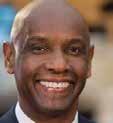
Experience:
Cecil Thomas Party: Democratic Website: www. cecilforcincinnati. com
Training and
collectively working together with my Republican colleagues to find common ground.
A2: Some believe that Ohio’s election system has widespread fraud, however, the Secretary of State stated, fraud is less than one percent. But, in spite of his statement, he continues to impose significant changes to Ohio’s voting process, making it more difficult for citizens to vote. He’s limited counties to one drop box, imposed stricter voter laws creating more barriers rather than allowing more access. Counties are limited to only one drop box, only valid photo ID, Driver’s Licenses, State ID’s, and Passports etc. These and many others are forcing voters to either not vote or vote provisional. And by voting provisional, you only have 4 days to correct any problem with your registration. These are sudden, unnecessary Republican changes.
A3: The most effective way to attract economic and job opportunities to Ohio is to retool our work force to meet the demands of the post pandemic, 21st century needs. Investing in job training, apprenticeships, technology, including environment sciences. We must also continue to provide needed support for the number one economic engine of Ohio, agriculture.
A4: My hope is there will be enough political will in the legislature to pass a school funding bill that will withstand a constitutional challenge. We have been funding our schools using an unconstitutional process for several decades, seriously hurting the publicschool systems. And we are now using taxpayer dollars to fund private and for-profit charter schools.
A5: The legislature in Ohio has slowly chipped away at the power of local governments to Home Rule. Local governments should have authority to pass laws without interference from the state as it relates to managing its affairs. State laws passed by the legislature that will have a significant, negative impact on local governments ability to function should not be allowed. For example, the state should not pass a law preventing a local government from collecting income tax, or sales tax.
BIOGRAPHICAL INFO: No response
CANDIDATE’S
QUESTION RESPONSES: No response
I am currently serving as the State Representative for district 25. I served as the Ohio State Senator for District 9 for eight years. During my time in the Senate I was the Ranking Minority Member on the Senate Judiciary and Senate Veterans and Public Safety committees. Additionally, I served on the Government Oversight and Reform; Health; Insurance; Select Committee on Gaming; Joint Legislative Ethics Commission; and Joint Medicaid Oversight committees. Prior to my time in the Ohio State.
CANDIDATE’S QUESTION RESPONSES:
A1: Public Safety/Gun Violence Common Sense Gun Legislation Worker’s Rights and Women’s Rights Protecting The Environment Protecting The Public School System Keeping Fighting to Lower Property Taxes
Protecting and Growing the MiddleClass Addressing these issues require
A6: The Ohio Department of Medicaid in collaboration with the Federal Government, has establish an excellent vehicle to assist many of our residents that can’t afford quality health insurance. The legislature must continue to support this collaboration through the Joint Medicaid Oversight Committee, (JMOC).
A7: There has to be a balance in protecting our environment and taking advantage of Ohio’s abondance of natural resources. As technology continues to evolve, there is light at the end of the tunnel. Our colleges and universities, and their research laboratories are making great strides in this space. There is room for all ideas.
A8: Simply said, any form of discrimination should be illegal. Government’s role should be to provide greater support and resources to the Ohio Civil Rights Commission and to collaborate with the Federal Government wherever possible.

Dani Isaacsohn
Party: Democratic Campaign
Email: iWebsite: www.votedani. com
Training and Experience:
After finishing his Master’s degree, Dani joined the Obama campaign as a community organizer in 2012. He then helped start grassroots organization Battleground Texas, focused on registering and turning out a new generation of voters in Texas. During law school he worked in the White House Counsel’s Office and the North Carolina Attorney General’s Office of Consumer Protection. After law school, Dani founded Cohear, a community engagement firm, elevating and empowering community voices.
CANDIDATE’S QUESTION
RESPONSES:
A1: I am focused on: Improving public education through better school funding, higher teacher pay, and innovative efforts to improve attendance and graduation Increasing access to affordable and high quality childcare Addressing our housing crisis by increasing construction, removing barriers to development, and strengthening renters’ rights Reducing youth gun violence by investing in after school programming, mentorship programs, and innovative, evidencebased approaches to utilize incentives and wrap around services Making our tax system - especially property taxesfairer by freezing lower-income seniors’ property taxes, simplifying the process, and re-evaluating the assessment process.
A2: We need redistricting reformcitizens should choose their elected officials, not the other way around. That means we need an independent commission to draw our legislative maps. Further, I support same-day voter registration and automatic voter registration, because it should be easy and simple for citizens to vote.
A3: By investing in the main drivers of quality of life in Ohio - good schools, safe communities, homes people can afford, high quality childcare access, public spaces - we will drive population growth and economic opportunity. Further, we need to continue to invest in developing workforce pipelines into careers that both fill needed gaps and provide strong economic stability, including the building trades, technology, medicine, nursing, education, and childcare.
A4: We need to fully and fairly fund our school system. Every kid in Ohio, regardless of where they are born, deserves a world-class education. Educating our young people should be our number one investment in our future, which means significantly increasing the amount we spend on public schools. Those investments pay huge dividends down the road, with a better educated workforce, more businesses being created, and fewer people entangled in our justice system.
A5: We need to return to fully funding our local government fund in Ohio. Since Kasich gutted that funding, our local governments have been struggling to maintain basic services and infrastruture maintenance. Everyone loses when our cities and townships don’t have the resources they need to provide high quality services for their citizens, so we need to restore much higher levels of local government funding.
A6: We are the richest country in the history of the world, and it is unacceptable that so many people still lack access to high quality healthcare that they can afford. We need a healthcare system that puts people and patients first, that invests in preventative care to reduce costs, and ensures that everyone - regardless of ability to pay - has access to the high quality care that they deserve.
A7: The climate crisis is getting worse every day, and we all lose if we don’t act to both reduce and reverse the harm that has been done, while also focusing on how we can mitigate the risks of climate change.
A8: - no response by print deadline -

Party: Republican Campaign Email: Sessman55@ gmail.com
Training and Experience: 31 year veteran Cincinnati Police DepartmentAssociation
CANDIDATE’S QUESTION RESPONSES: [questions on pg 8]
A1: Convention of States movement Elimination of Ohio sales tax Expose wasteful tax dollar spending Prison reform/recividist reduction
A2: Voter ID enforcement and continuation Remove internet connected electronics from elections
A3: Reduce taxes on businesses
A4: De-incentivize fatherless households.
A5: Stop funding cities who support fatherless households.
A6: Keep it privatized.
A7: I support the prosecution of companies who pollute our air and water in excess.
A8: Case by case basis.

RESPONSIBILITIES: Exercises financial control of County expenditures; authorizes public works; purchases land and buildings; lets contracts; plans and administers welfare. The Board of County Commissioners also appoints other officials to operate various departments within the county.
TERM: 4 years.
BASE SALARY: $96,000
QUESTIONS:
Q1: If elected, what will be your top 3 priorities for the county?
Q2: What are your thoughts on the Metropolitan Sewer District, its structure and relationship with the City? Would you favor allocating stormwater costs based on runoff from impervious surfaces?
Q3: What changes will you seek in Hamilton County negotiations with the Bengals about Paycor Stadium?

Party: Libertarian Campaign Website: Kyledupler. my.canva.site Experience: 18 years of experience in the fields of information technology and insurance investigations Political Philosophy: Libertarian civil liberties and small government Occupation: Forensic Technician CANDIDATE’S QUESTION RESPONSES:
A1: 1) Severely reduce taxpayer burden to fund Paycor stadium. 2) Reduce spending, taxation, and debt. 3) Reduce regulations and ease zoning, to promote economic growth.
A2: The management and operation of MSD should return to the County in such a way that it does not effect ratepayers or pensioners. I would not favor allocating stormwater costs based on runoff from impervious surfaces.
A3: I will seek the best deal for taxpayers, even if that means selling the stadium to the Bengals franchise or another private owner.

Jonathan Pearson Party: Republican Campaign Website:
hamiltonrepublicanparty.org
Experience:
Running my own company since 1992 Political Philosophy: I believe government should be limited to allow people and business to succeed. Government should not interfere with honest religion.Taxes should be low because I believe people are better stewards of money then the government. Our county taxes are much too high and we have to change that. I trust in a strong but limited government, serving the people with the least amount of taxes possible to provide good and prudent services.
CANDIDATE’S QUESTION
RESPONSES:
A1: Budget; Bring in the budget to serve the necessary needs of the county first. Have a budget that can entice the people and legislative reality to lower taxes. Press the County Auditor to give normal evaluation to homes. Get people to reconsider all the monies attached to sales tax. Stadiums: have stadium deals that favor the people with more money input from the teams. Finally, keeping the public informed with the most transparent means possible.
A2: The city/county relationship has at best been challenging. I am not sure how much longer the current form of structure continues. It is necessary to have a solid well working team for the sake of cost value to the citizens. As for allocating stormwater cost, I will need to see what the numbers would be and its impact on business and home development in the county.
A3: Paycor Stadium lease: the reality of the stadium deal is we as taxpayers started in the hole. I would like to see the Brown family step into the lease with more skin in the game. I would need to see the direct numbers to give more pertinent information. But as with any negotiation and with any tenant, regular contact and forthright transparency is the key to good relationships.

com
Alicia Reece
Party: Democratic Campaign Website: www. votealiciareece.
Experience: Cincinnati City Council, Vice Mayor, Deputy Director of Ohio Tourism, State Representative, Ohio Legislative Black Caucus President, Vice Chair of Ohio Womens Caucus, County Commissioner Political Philosophy My focus is on providing opportunity, challenging the status quo, increasing transparency, and educating the public on how county government works. I’m proud of our groundbreaking achievements, which have positively impacted thousands. My commitment is to ensure we remain ‘One Hamilton County,’ where every community receives the support it deserves.
CANDIDATE’S QUESTION RESPONSES:
A1: I am running for re-election as Hamilton County Commissioner to expand our transformative achievements and initiatives like the 513 Relief Bus, which has provided free health and economic services to over 20,000 residents, advocating for homeowners by fighting against high property taxes and reintroducing the 30% property tax rebate, creating a $2 million senior citizens fund, expanded veterans’ services through first ever Appreciation, and Resource Day, helping over 3,000 veterans, and more.
A2: Hamilton County is under a consent decree to meet federal sewer system requirements. The 1968 Agreement assigns the City of Cincinnati operational oversight while the County retains ownership. My priority is to keep MSD rates and costs manageable to avoid burdening taxpayers, many of whom are struggling financially. We must balance stormwater management with affordable rates, ensuring any necessary improvements do not compromise residents’ ability to thrive amid rising costs.
A3: Hamilton County deserves a fair and transparent deal tied to a new long-term lease. Currently, taxpayers cover 95% while the Bengals pay just 5%. We need to negotiate a more diversified funding model including NFL, State, private input. Additionally, we must ensure diversity in stadium projects, including opportunities for minority-owned businesses and accessibility for all, especially those with disabilities and seniors. Maximizing stadium use with more events that can generate more revenue.

Denise Driehaus
Party: Democratic Experience: I have been a County Commissioner for 7 years and before that served as a State Representative for 8 years. Prior to public service, I owned and operated two small businesses, while serving on the Price Hill Civic Club,
Price Hill Merchants Association among other community organizations. I also served on the Cincinnati Recreation Commission for 16 years as a volunteer board member.
Occupation: Hamilton County Commissioner Campaign Website: denisedriehaus.com Political Philosophy: I believe in building a community that offers opportunity for all to achieve prosperity. I believe that government should work for all citizens. I believe in creating systems that are open, transparent and fair.
CANDIDATE’S QUESTION RESPONSES:
A1: When I was first elected, the County was in dire financial straits. We made tough decisions to enhance revenue and fund programs to best serve our constituents. Now the County has a structurally balanced budget and has seen steady growth. In addition to keeping a structurally balanced budget, my top priorities are to continue to grow our region by supporting local businesses, build more housing to accommodate increased growth, & create more opportunities for our vulnerable populations to succeed.
A2: MSD’s structure needs to change. The divide amid County Administration and MSD senior leadership inhibits progress. MSD senior leadership should become County employees to allow a clear chain of command and improve strategic management decisions. The general workforce should remain City employees. I have supported making sewer rates more equitable. I support the Impervious Surface Fee Task Force’s efforts to find a way to levy a reasonable fee to those dumping water through impervious surfaces.
A3: County taxpayers will get a better deal. Per the previous lease, taxpayers are responsible for roughly 94% of the investment in the stadium and the team gets most of the revenue. We are aiming to significantly change that so the Bengals, the NFL, and other funding partners take on a larger part of the investment, relieving some of the burden from taxpayers. I will also be advocating for revenue sharing. I also want to make the stadium more open to the community beyond just the NFL season.

Party: Republican Experience: While I haven’t held a government position, my extensive experience as a serial entrepreneur and board member for various organizations in Cincinnati Public Schools and private groups has equipped me with valuable skills in leadership, strategic planning, and community engagement. This background fosters a unique perspective and approach to addressing the challenges and opportunities within Hamilton County. Occupation: Entrepreneur Campaign: Website www.adamkoehler. com
Political Philosophy: Republican
CANDIDATE’S QUESTION RESPONSES:
A1: My top priorities will be fiscal responsibility, economic development, and public safety. I will ensure efficient use of every tax dollar, promote policies that stimulate job creation and economic growth, and enhance public safety measures to keep our communities secure. My approach will involve
scrutinizing expenditures, supporting small businesses, and driving initiatives that prepare our workforce for high-demand sectors.
A2: The MSD’s governance and financial management need restructuring to enhance accountability and transparency. I support exploring a governance model that aligns responsibilities and financial oversight more effectively between the County and the City. Additionally, allocating stormwater costs based on runoff from impervious surfaces would be a fair and environmentally responsible approach, ensuring costs are distributed equitably based on actual impact.
A3: I will prioritize fiscal prudence in negotiations with the Bengals regarding Paycor Stadium. My focus will be on protecting taxpayers by ensuring that any deal includes substantial contributions from the team to cover operating and capital costs. Additionally, I propose collaborating with the Bengals to align their charitable efforts with county social services, helping to offset social service costs while deepening the team’s community impact.
Party: Libertarian Occupation: Pharmacist Campaign Website:
Hamilton.lpo.org
Affiliations: Libertarian Party of Ohio
Political Philosophy: Libertarian, Austrian School of Economics
CANDIDATE’S QUESTION RESPONSES:
A1: My top three priorities for Hamilton County will be lowering costs for citizens to relieve the stress from inflation, reduce regulations to spur economic growth, and reduce violent crime. By focusing on these three issues, Hamilton county will become a safe haven for families and businesses which are the cornerstone of a thriving and wealthy county. I believe that the citizens of Hamilton County know how to spend their own money and run their businesses better than the county government.
A2: MSD should be run as close to a private business as possible with reliable and transparent pricing for customers. Pricing that is not based on actual usage does not allow citizens to make decisions on how to best plan their finances. This is why I am against impervious surface runoff charges, as this usage depends on factors outside of the client’s control (I.e. the weather), and is essentially a tax that will disincentivize business investment in Hamilton County.
A3: While I don’t like county expenditures that do not equally benefit all citizens, I believe the Bengals bring our community together, which is an important factor in building a thriving, growing community. Having said that, I think it is important that county leadership make it clear to the Bengals that our first responsibility is to the long term financial strength of the county and that if a deal is not fair to our tax payers, we are prepared to “walk away” for the good of our citizens.
DESCRIPTION: County Auditor - Values real property in each county conducting periodic real property valuation, maintains county financial records and issues warrant for the payment of county obligations
TERM: 4 years.
QUESTIONS:
Q1: What are your qualifications for this office?
Q2: What is your experience in managing operations in an office the size of the Auditors Office and your experience with computer/technology innovation?
Q3: Would you recommend any changes in the property reassessment process, either locally or by the state, to address concerns about disparities?
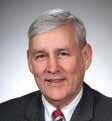
Tom Brinkman Party: Republican Experience: Served 8 two year terms in the Ohio House of Representatives
Occupation: Life Ins. Sales Political Philosophy: Lower taxes, less government CANDIDATE’S QUESTION RESPONSES:
A1: Served 16 years in the Ohio House of Representatives
A2: Working 22 with a small business and 15 years with a Fortune 100 company using all types of technology and computers
A3: We need to hire real people to conduct property appraisals in Hamilton County

Jessica E. Miranda Party: Democratic Experience: Small Business Owner, Former Winton Woods City School Board President, Former State Representative, Current County Auditor
Occupation: Hamilton County Auditor Campaign Website: jessicaforohio.com Education: Talawanda High School
CANDIDATE’S QUESTION
RESPONSES:
A1: As County Auditor and a former Ohio State Representative, I’ve dedicated my career to fiscal transparency, public accountability, and protecting our communities. I passed legislation to eliminate Ohio’s spousal rape loophole and led efforts to support survivors of child sexual abuse. My leadership in auditing ensures responsible use of taxpayer dollars, and I’m proud to continue fighting for fair property valuations and services that benefit all residents.
A2: As County Auditor, I manage a large team overseeing property valuations, tax distributions, and financial audits. I’ve implemented modern technology solutions to improve accuracy and
transparency, including online tools for property searches and dog licensing. My commitment to innovation ensures that our office remains efficient, userfriendly, and accessible to all residents, while maintaining high standards of accountability and public trust.
A3: Yes, I support reforms to make the property reassessment process more transparent and equitable. Locally, we can improve communication with homeowners and provide clear, accessible resources to explain valuations. At the state level, I advocate for modernizing assessment methods to ensure they reflect true market values and reduce disparities. I also support exploring relief options for vulnerable populations facing rising property taxes to protect affordability.
QUESTIONS:
Q1: How does your personal and professional history prepare you to be a good judge?
Q2: How does an appellate judge differ from a trial court judge? Are different skills
HAMILTON COUNTY COURT OF APPEALS JUDGE (DISTRICT 1) - TERM BEGINNING FEB. 9, 2025

Sean M. Donovan
Occupation: Assistant Prosecuting Attorney Experience:
Since 2010 I have been an assistant prosecuting attorney with the Hamilton County Prosecutors Office. I have handled cases in the Juvenile, Municipal, Domestic Relations and Common Pleas courts. For the last eleven years I have been assigned to the appellate division, handling cases in the First District Court of Appeals.
CANDIDATE’S QUESTION
RESPONSES:
A1: I have real-world experience and a diverse background that makes me uniquely qualified. As a prosecutor, I have handled thousands of cases and hundreds of appeals. Everything from minor traffic offenses to death penalty litigation before the Ohio Supreme Court. I am deeply committed to the rule of law and the fundamental principles that judges are sworn to apply the law as it is written, without bias or prejudice toward any, and compassion for all who come before the court.
A2: Trial judges primarily deal with issues of fact and procedure, while appellate judges primarily deal with questions of law. Trial court decision impact only the
Voters often don’t have much information about judicial candidates. Because most citizens do not routinely interact with judges in their communities, they tend to know very little about how judges conduct themselves in the course of doing their jobs. In addition, state rules do not allow judicial candidates to discuss their views on controversial issues because judges must be impartial on the bench. It is important for voters to understand the role of the courts and the important qualities to consider when evaluating judicial candidates.
To learn about candidates for judge in your area consider reading candidates’ campaign literature, visiting campaign websites, and talking with people who know the candidates, including practicing attorneys. The League of Women Voters of Ohio again this year joins the Ohio State Bar Association, the Bliss Institute for Applied Politics at the University of Akron, the Ohio Newspaper Association and Ohio Broadcasters Association in a statewide, nonpartisan, online judicial voter’s guide at www.judicialvotescount.org.
In order to make a decision, when voting on judicial candidates, consider the answers to the following questions:
• To what extent has the candidate practiced in the area(s) of law the court handles?
• What work or other experience has the candidate had that will particularly qualify the candidate to perform the duties of a judge on this court?
needed?
Q3: Do you favor or disfavor including political party labels on the judicial ballot? Why?
parties involved in that specific case, but appellate court rulings are binding on all lower courts in the judicial district and have long term impact. Appropriately, appellate cases are decided by three judge panels achieving a majority decision, while the trial judge makes the decision alone.
A3: I do not believe party designations are appropriate on the judicial ballot, particularly in appellate court races. Judges should never be influenced by their personal policy preferences and anything that implies alignment with a specific set of political beliefs should be avoided so the community has faith in the independence and impartiality of our judicial system.

Occupation: Judge Experience: Private Practice Civil Defense, City of Cincinnati, City Solicitor’s Office 2003-2018, Chief Trial Counsel for City of Cincinnati, Deputy City Solicitor, Acting City Solicitor; Hamilton County Common Pleas Judge, 2019-current; Veteran’s Court Judge for Hamilton County, 2021-present Political Philosophy: Moderate American Democrat
CANDIDATE’S QUESTION RESPONSES:
A1: I have been both a trial lawyer and a trial judge. As the lead attorney for
• What is the candidate’s legal philosophy? Political philosophy?
• Consider the candidate’s integrity, judicial temperament, and level of commitment to public service and the administration of justice.
• Also, consider who is paying for any advertising about any particular judicial election. For our democracy to function, judges must carry out their tasks impartially and independently. Judges’ decisions should not follow public opinion or promote special interests or even reflect their personal beliefs.
Judges’ decisions should be based on facts and law. This judicial impartiality protects fair trials and upholds the rule of law.
Cincinnati, I litigated cases as varied as eminent domain, zoning, personal injury, and civil rights. Since 2021, I have been honored to serve as Hamilton County’s Veteran’s Court judge, and
represent Hamilton County on the Ohio Supreme Court case management advisory committee. I have appeared at every level of Ohio’s appellate courts, including Ohio’s federal district courts and the US 6th Circuit.
A2: Yes, these judgeships require different skills. However, it is extremely helpful to have real trial experience to sit as an appellate court judge. The trial judge has the difficult task of thinking fast to control the trial court environment, including attorneys, witnesses, and jurors. The appellate judge has the duty and responsibility to review the decisions and proceedings of trials. Knowing the crucible of trial is indispensable to the task of determining if justice was fairly served.
A3: The law and Ohio’s judicial elections should be non-partisan. Until the last two elections, that is how it worked in Ohio. The gerrymandered Ohio General Assembly has unnecessarily injected politics into judicial elections to protect partisan advantage. This unfortunately undermines the integrity and legitimacy of the judicial process, which should not favor any party or creed. I favor a unified judicial system in Ohio that elevates the law above partisan division.
HAMILTON COUNTY COURT OF APPEALS JUDGE (DISTRICT 1) - TERM BEGINNING FEB. 11, 2025

Candace Crouse
Occupation: Judge
Experience: Judge, Ohio First District Court of Appeals (Feb. 2019-present); Attorney Private Practice (Sept. 2002-Jan. 2019); Law Clerk to U.S. District Court Judge Frederick P. Stamp, Jr. (Sept. 2000 - Aug. 2002), Adjunct Professor, University of Cincinnati College of Law, Commissioner of the Ohio Board of Professional Conduct, Member of the Ohio Judicial Conference Jury Instruction Committee
CANDIDATE’S QUESTION RESPONSES:
A1: 18 years practicing law before I took the bench. 2 years clerking for a federal district court judge. The rest of my career was spent in litigation at both the trial and appellate levels practicing civil and criminal law . A good judge should know how to try a case. A good appellate judge should have extensive appellate experience. I have both. I also
have judicial experience. I clerked for a judge. I have been on the bench for over 5 ½ years. I have no lawyers or politicians in my family.
A2: Trial judges are often fact-finders because they hear witnesses who testify. Appellate review is limited to questions of law and the fairness of the trial court proceedings. Appellate judges often focus on how to set precedent that can be applied to other cases, while trial judges focus on individual cases. Trial judges have a very fast-paced job. The job of an appellate judge is slower and requires a lot of reading. A good appellate judge is someone enjoys researching and studying the law.
A3: I disfavor including political party labels on the ballot. I understand that it can be difficult for voters to research judges and decide who to vote for, but a person’s political party should not be the sole reason someone votes for a judge. In my experience, good judges are good judges, regardless of party. Politics has no place in our court system. A judges’ job is to follow the law and decide each case fairly, impartially, and independently.

Occupation: Assistant Prosecuting Attorney
Experience: 14 years of experience in the courtroom as an Assistant Prosecuting Attorney; Civil litigation experience at a firm after graduating from law school.
CANDIDATE’S QUESTION
RESPONSES:
A1: I have tried dozens of the most serious cases in Hamilton County. I know what should and should not happen in a courtroom and I’m ready to take the bench to make sure the law is followed and Justice is done.
A2: An appellate judge’s work is very different from the work of a trial judge in that the appellate judge must review transcripts and make decision on the law while a trial judge may make decisions of fact and law. However, I think the values of following the law as it is written and maintaining a courteous, professional courtroom are the same.
A3: I understand putting party labels on the ballet may help some voters make a decision. However, theoretically, a judge should not be partisan and should uphold the law regardless of his or her personal beliefs.
HAMILTON COUNTY COURT OF APPEALS JUDGE (DISTRICT 1) - TERM BEGINNING FEB. 12, 2025

Occupation: Hamilton County Common Pleas Court Judge Experience:
I have served as Hamilton County Court of Common Pleas Judge since February 2021. Prior service includes Hamilton County Treasurer for 29 years. I have served as President of the Hamilton County Investment Advisory Committee, President of the County Board of Revision, President of the County Budget Commission and President of the Hamilton County Land Bank. I am an Eagle Scout and an Adjunct Professor of Bankruptcy Law at Chase College of Law.
CANDIDATE’S QUESTION RESPONSES:
A1: I have served Hamilton County residents as the Hamilton County Treasurer as well as a Common Pleas Court Judge. I have always held the interests of our community at heart, serving diligently and fairly. I have also contributed back to our community through my community service activities. As an Eagle Scout, I currently serve on the Dan Beard Council, BSA Board of Directors. I have spoken to numerous groups and associations, and currently am an Adjunct Professor of Law at Chase College, NKU.
A2: As a trial court judge, I have presided over jury murder trials, complex civil litigation and various drug and other criminal cases. I have an excellent judicial temperament, as I am willing to listen to all sides, review the law, and promptly make a decision. This judicial experience will greatly help as an appellate judge. There is only one First District Court Judge with any trial court experience, and they are not running again. I will bring the needed experience to this important office.
A3: I feel strongly that our Constitution does a wonderful job with the Separation of Powers. The State Legislature added the partisan labels to the previously nonpartisan races in 2021. If Ohio residents feel this is unwarranted, they have to take the issue to their local representatives. Neither Judges nor Executive branch officials have anything to do with this matter. I am proud to have been elected Judge of the Court of Common Pleas and I would love your vote as Judge for the First District.
This Voter Guide identifies write-in candidates by placing (Write-in) next to their name. You can also get a write-in list from your Precinct Election Official (PEO). To vote for a write-in candidate, completely darken the box to the left of the blank line and write in the candidate’s name as it appears on the write-in list. Ask your PEO for help if you have questions.
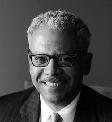
Occupation:
Attorney Experience:
Partner Partner Frost Brown ToddFrost Brown Todd Sep 2010 - Present; Partner Partner Vorys, Sater, Seymour and Pease LLP Sep 1993 - Sep 2010
CANDIDATE’S QUESTION RESPONSES:
A1: As a litigator in private practice for over 30 years, I have represented clients in matters in both state and federal courts and have argued in both trial courts and courts of appeal. I have represented plaintiffs and defendants, individuals, and large and small businesses. I have also represented criminal defendants early in my career by taking appointed cases as part of the public defender panel. My experience makes me uniquely qualified to serve as a judge on the Court of Appeals.
A2: The role of the appellate court is error correction and ensuring consistent application of the law to the facts in the record. The trial court is primarily responsible for fact-finding and case management. The two roles are different and require different skill sets. My 30 years as a full-time litigator have allowed me to develop the critical thinking skills, writing ability, and strong work ethic that are all fundamental to being a successful appellate judge.
A3: I am in favor of including party labels. I think it is important for voters to understand the values that a judicial candidate will bring with him or her to the position. The political party that a candidate chooses to associate themselves with speaks to those values.
HAMILTON COUNTY COURT OF APPEALS JUDGE (DISTRICT 1)TERM BEGINNING FEB. 10, 2025

Occupation: Assistant Hamilton County Prosecutor Experience: I started my law career working as a law clerk for Judge Thomas Crush and after he retired I worked briefly for Judge Ted Winkler and Magistrate Richard Bernat before starting at the prosecutors office.
A1: I am fortunate that I had the opportunity to work for a Judge and in a court room prior to actually placing. This has been extremely beneficial because I have a better understanding about what should go on in court and how people should be treated. Being raised by parents who worked in a family business they instilled in me the importance of treating people with respect and that is something I have carried into my career and I believe is an asset to being an attorney and a judge.
A2: An appellate judge does not get to hear new evidence or hear from witnesses. The appellate judge is responsible to make sure the proceedings were fair and the appropriate law was applied. It’s essentially a reviewing court to make sure that the trial court proceedings were handled properly whether that is a trial or motions.
A3: I do not think party labels should be on the judicial ballot. As attorneys, we all take an oath when we are sworn in to uphold the constitution and the laws of the State of Ohio. It should not matter what party you are affiliated with because you are supposed to follow the law.
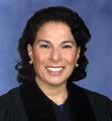
Occupation: Judge, Court of Appeals Experience: Judge at Ohio’s First District Court of Appeals. 2016 – Present.• Judge by special assignment at Ohio’s Second, Sixth, Tenth, and Eighth District Courts of Appeals. •Selected by Ohio Supreme Court’s Chief Justice to serve by special assignment on a case at Ohio’s Supreme Court. • Ohio Supreme Court Board on Character & Fitness, Commissioner. December 2018-February 2022. • MZD Law, Attorney, Founder. 2000-2016. University of Cincinnati College of Law, Adjunct Professor. 1998-2001. •Hamilton County Public Defender’s Office, Trial Counsel. 1998-2001. • Holland & Hart LLP, Intellectual Property Litigator and Labor & Employment Law. 1997-1998. •The Procter & Gamble Co., IT Manager. 1988-1994. Political Philosophy: Politics have no role to play in our judiciary. My judicial philosophy is to faithfully apply the law and our constitution equally to all, independent of outside influence or partisan pressure.
CANDIDATE’S QUESTION RESPONSES:
A1: I am honored to serve as an appellate judge for almost eight years. Growing up disadvantaged, all I wanted was a fair chance at life. Now, my top priority is to ensure that the law is applied to all fairly and consistently, with integrity, independence, and common sense. My vast experience, in the trenches representing families, working at P&G, with new business owners,
enable me to fully understand the complex legal issues we are facing. Bar associations rated me excellent, the highest rating.
A2: Appellate judges do not have trials or hear witnesses. We correct errors in trial court decisions. Three appellate judges review the decisions to ensure the law was followed and the proceedings were fair and constitutional. Appellate judges collaborate, analyze law, review the evidence presented at the trial, and must refrain from judicial activism. It is important to have judges from a variety of backgrounds and perspectives to ensure that each case is carefully and thoroughly reviewed.
A3: Disfavor, along with party endorsements, because politics should play no role in our courts. Public trust and confidence in our courts is best achieved when our decisions are based solely upon the law as applied to the facts of each case. In my service to you as a judge, I take an independent approach to each case, with the courage and integrity to faithfully follow the law, unaffected by outside influence or partisan pressure.
A1: I feel the court has been streamlined quite a bit over the past few years. There are still issues, however, with scheduling, particularly criminal cases. The best way to deal with delays is to have meetings every few weeks with the attorneys on cases scheduled for trial, and push them to keep on schedule. It’s not a guaranty it will get resolved quickly but it helps the process move forward.
A2: Bias and inequity are not present in my courtroom. Every criminal case is different, each set of circumstances are different. Sentencing guidelines are set for this exact reason: so a judge can evaluate each case on its merits, on the pre-sentence investigative report, the defendant’s criminal history, and of course the victim impact statement. Some cases are worse than others. There is no “one size fits all” sentence for any type case.
RESPONSIBILITIES: To preside at trials of both civil and criminal cases; to supervise the jury commission, grand jury, and other departments of the court.
TERM: 6 years.
SALARY: $121,350
QUESTIONS:
Q1: What changes would you favor to improve the efficiency of common pleas courts?
Q2: : How will you keep bias and inequity out of your courtroom?
Q3: What, if any, bail reforms would you recommend for our court system?
HAMILTON COUNTY COURT OF COMMON PLEASGENERAL DIVISION - TERM BEGINNING APRIL 1, 2025

Leslie Ghiz
Experience: 30 years admitted to practice law in Ohio. 17 years practicing civil attorney, primarily Labor and Employment Law; 12 years judicial experience Political Philosophy: None necessary for judges. Per the Ohio Judicial Cannons, we are not to show political favor. I prefer to treat each individual case on its own merits, and to ensure all parties in every case are treated fairly.
A3: Bail reforms have been set through constitutional amendment a few years ago. Judges must look at each case and determine if the bail set is fair based on the facts, the criminal history of a defendant, the financial strain of bond, and the threat he/she poses to the public. In no instance should a low level felony defendant be held without bond, or with a bond he/she can’t possibly make.
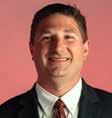
Experience: 2010-2020 & 2021 to Present- Asst. Prosecuting Attorney at the HCPO; 2020-2021 Magistrate in the Hamilton County Court of Domestic Relations
Occupation: Assistant Prosecuting Attorney at the Hamilton County Prosecutors Office/ Part-time Mayors Court Magistrate
CANDIDATE’S QUESTION RESPONSES:
A1: Judges must be on time and prepared for their cases. Judges must comply with the Ohio Supreme Court’s Case Management Section and follow the timeframes provided by the rules.
A2: I will comply with the Ohio Rules of Judicial Conduct. Canon 1 requires a judge to promote the independence, integrity, and impartiality of the judiciary, and shall avoid impropriety and the appearance of impropriety. Canon 2 requires that a judge shall perform the duties of judicial office impartially, competently, and diligently. I will follow these principles to promote fairness avoid bias and prejudice.
A3: As judge, I would follow the Ohio Constitution and laws regarding bail conditions. This includes the following factors of public safety, including the seriousness of the offense, and a person’s criminal record, the likelihood a person will return to court.

Experience: I have been an attorney for over thirty years, trying cases like the ones that would appear in the court I am running to serve on.
Occupation: Criminal Defense Attorney
CANDIDATE’S QUESTION RESPONSES:
A1: First off, judges simply need to show up for the job. For decades we have seen many Hamilton County judges working half days, or not showing up for work five days a week. The tax-payers of Hamilton County deserve judges who do their work. I have spent decades working the criminal docket, and know how to efficiently run a speedy trial.
A2: As someone who comes from a working poor community, went to Walnut Hills, and worked my way through law school, I have interacted with people from all walks of life. Part of keeping bias and inequity out of the courtroom is having judges who have more diverse lived experiences. I will work to ensure transparency is a core principle of my courtroom. I will adopt the model set by other judges who livestream their court proceedings, and will share sentencing data from my courtroom.
A3: The point of the bail system is to ensure that those charged with crimes show up to court. I believe that those who commit nonviolent low level crimes should not receive unreasonably high bail that keeps them behind bars for unnecessarily long times. Those who pose a threat to the community should be detained until their trial.

Experience: Assistant City Manager, City of Cincinnati (Present); Human Services Director, City of Cincinnati (2020-2022); Senior Assistant City Solicitor, City of Cincinnati (2018-2020); Supervising Attorney, Legal Aid Society of Greater Cincinnati (20092018). I am an experienced community leader, litigator, and administrator, with passion for creating solutions to complex problems. I have a track record of achieving results for citizens impacted by housing and health crises through litigation and policy strategies. My diverse work experience has equipped me with the skills, knowledge, and dedication necessary to serve effectively as a judge on the Court of Common Pleas.
Occupation: Assistant City Manager, City of Cincinnati Political Philosophy: Equal justice, fairness, and efficiency in our courthouse.
CANDIDATE’S QUESTION RESPONSES:
A1: I support increasing efficiency and reducing delays by implementing proactive case triage to identify cases needing more time. When elected, I will work to maximize efficiency in my courtroom by ensuring each case has a predictable schedule and productive court events; I will use datadriven performance tools to enhance efficiency; and I also support expanding technology for virtual hearings and case filings will streamline processes and improve accessibility for all parties involved.
A2: When elected to the Court, I will keep bias and inequity out of my courtroom by treating every individual with dignity and respect, ensuring all parties are heard, and applying the law fairly. I support implicit bias training for judges and jurors to address unconscious prejudice. I will use data-driven performance reviews to monitor fairness in decisions and foster an inclusive environment where all individuals—regardless of race, background, or status—receive equal justice under the law.
A3: Bail decisions should be based on public safety and flight risk. Those who represent a clear or ongoing risk to the community should not receive bail. I support reforms that reduce reliance on cash bail, ensuring individuals are not detained simply because they cannot afford bail. I support the expansion of pretrial services, such as highquality risk assessments, to ensure fairness while protecting public safety and reducing unnecessary detention.

Robert C. Winkler
Experience: Judge, Hamilton County Municipal Court 2002 to 2006; Judge Hamilton County Court of Common Pleas 2006 to 2018; Ohio First District Court of Appeals 2018 to Present; Supreme Court of Ohio by assignment 2024; Case 2023-0464.
CANDIDATE’S QUESTION RESPONSES:
A1: Each judge is responsible for their own caseload. I have always maintained an efficient timeline for the resolution of my cases by adhering to the Ohio Supreme Court’s guidelines governing the disposition of cases according to the nature of the case. I have accomplished this by setting a case scheduling order at the initial case conference and adhering to it. I will continue to do so.
A2: I have always maintained a bias free courtroom and all parties are treated equally. If I ever became aware of anyone being treated unfairly I would address it immediately. It has never been a problem with my staff.
A3: Each judge is required to set bail based on the individual case. For instance, a violent repeat offender who has committed another violent offense deserves special attention based the prior history and community safety. Reason and common sense also play a role in setting a bond. The nature of the crime is the main consideration for me. In accord with the Ohio Constitution, those accused of murder, rape, arson, burglary and other violent felonies will have their bond set accordingly.

Katie Casch
Occupation: Assistant Prosecuting Attorney
Experience: I have the right experience to keep Hamilton County safe. I have over ten years of experience at the Hamilton County Prosecutor’s Office. As an Assistant Prosecuting Attorney, I fought for the most vulnerable members of our society. I represented Hamilton County Job and Family Services in custody cases involving abused and neglected children. I took it upon myself to prosecute all animal abuse and neglect cases in Municipal Court. In Common Pleas Court, I prosecuted the most serious crimes against victims including domestic violence, robberies, rapes, and murders. Currently, I am a civil attorney at the Prosecutor’s Office. Political Philosophy: My judicial philosophy is to apply the law fairly and accurately as it is written.
CANDIDATE’S QUESTION RESPONSES:
A1: As a judge, I will improve efficiency in the Hamilton County Common Pleas Court by setting and adhering to deadlines and promptly ruling on all matters before the court.
A2: Throughout my career as an Assistant Prosecuting Attorney, I have advocated for victims and fought against injustices. As a Common Pleas Judge, I will remain committed to addressing all injustices.
A3: The Ohio Constitution mandates judges consider public safety when setting bail. As a judge, I will follow the Constitution when setting bail to protect Hamilton County.

Steve Simon Occupation:
Attorney Political Philosophy: Not applicable for judicial candidates
CANDIDATE’S QUESTION RESPONSES:
A1: One of the most common complaints by lawyers about judges is their delay in making a timely decision. Lawyers are often afraid to simply make an inquiry in this situation, even if the delay has lasted months. This is unacceptable. If elected, I will ensure litigants are promptly notified through counsel about an expected timeframe for my decision, and, if that time passes, the lawyers will be strongly encouraged to contact my staff for an update.
A2: As a labor and employment lawyer, I have spent almost my entire career representing working people and fighting to combat discrimination in the workplace. If elected judge, I will be committed to ensuring my courtroom is one where all parties and their attorneys are treated fairly and with respect, regardless of their background, ethnicity or gender. Because bias can infect even the most enlightened jurist, I also promise to participate in the anti-bias training for judges.
A3: The purpose of bail is to ensure criminal defendants appear for trial. The judge should consider the financial circumstances of the defendant, among other factors, when setting the bond amount. Otherwise, low-income defendants will automatically be detained pre-trial simply because they cannot afford to pay the bond. However, for some defendants, bail should be denied entirely based on the offense charged and their potential threat to the victim specifically or the community generally.
State and federal law require election officials to provide the following types of assistance:
• Curb-side voting – Voters who have mobility difficulties can request curb-side voting. A pair of poll workers will bring a paper ballot out to your car, so you can vote without having to go inside the polling location.
• Assistance inside the polls – Who can help:
- Voters are entitled to assistance from a person of their choice.
But assistance is NOT permitted from the voter’s employer, the employer’s agent, the voter’s union representative, or a candidate who is on your ballot – because the law prohibits these individuals influencing your vote.
- Voters can also receive assistance from two poll workers (one from each party).
• Accessible voting machines - Every polling location is required to have a special accessible voting machine with options for audio ballots, Braille touch pads, large print/zoom features, and height and tilt adjustments on the screens. When you arrive at your polling location, please let the poll workers know you prefer to use the ADA accessible voting machine.
• Absentee voting – All voters in Ohio are eligible to vote by mail-in absentee ballot. You will need to submit an absentee ballot request form to your county Board of Elections before the deadline, and they will mail you an absentee ballot so you can vote from home.
RESPONSIBILITIES: To investigate and prosecute crimes committed within the county, to defend the county in court, and to give legal advice to county agencies and townships.
TERM: 4 years.
BASE SALARY: $101,271

Party: Democratic Political Philosophy: Service before self. Pursue justice with integrity. Be accessible and accountable to the people.
Campaign Website: conniepillich.com
Experience: Captain, USAF; Attorney, including six years as a public defender, felony panel; state legislator, three terms. Founded and built law firm of Webb & Pillich.
Occupation: Attorney
CANDIDATE’S QUESTION RESPONSES:
A1: While Ohio law segregates juvenile offenders from adult offenders, it does allow us to send some juveniles to adult court. There is no “bright-line” test to determine who goes and who stays. As prosecutor, I would consider three factors before sending a juvenile to adult court: (1) the seriousness of the offense and the harm suffered by the victim; (2) the child offender’s age & previous record, and whether a firearm was used; and (3) the child’s mental health and amenability to rehabilitation.
A2: Absolutely. People of all backgrounds deserve to feel safe in Hamilton County, but hate crimes have increased 35%. As prosecutor, I will hold perpetrators accountable to the fullest extent of the law. I’ll prioritize hate crime cases, train our staff lawyers, and increase language access on our website. I’ll reach out to the community to encourage victims to report hate crimes and help bystanders learn how to interrupt hate when they see it. Finally, I’ll use social media in a positive way.
A3: I will bring the right kind of leadership we need to keep us safe the smart way. My plan: 1) Train our attorneys – trial practice, integrity, rules of evidence, false confessions. 2) Audit our work -- root out mistakes, celebrate successes. 3) Push ethics – use strong integrity, eliminate conflicts of interest and favoritism. And 4) Modernize the office – upgrade computers; establish departments for HR and Hate Crimes; hire top talent.
Q1: Regarding juveniles charged with a crime, what circumstances would lead you to file charges for a juvenile in the adult court?
Q2: : Regarding increased hate crimes and incidents, is there a role in the Prosecuting Attorney’s office to address these crimes and incidents? If so, what is that role?
Q3: What is currently the biggest need of the Prosecuting Attorney and how will you fill that need?

Powers Party: Republican Experience: 1991-1998: Assistant Hamilton County Prosecutor; 1998-2006: Private Practice specializing in criminal defense and civil litigation; 2006-2016: Hamilton County Municipal Court Judge; 2016-2022: Hamilton County Juvenile Court Judge; 2023-current: Hamilton County Prosecutor Occupation: Hamilton County Prosecuting Attorney
CANDIDATE’S QUESTION RESPONSES:
A1: As a former Juvenile Court judge, I understand the balancing factors that must be considered when requesting a juvenile be transferred to the adult court. There is no “one size fits all” approach to juvenile crime. We must evaluate each matter on a case-by-case basis to ensure the safety of the community, fair and equal justice, rehabilitation, and consideration of the appropriate outcomes for the severity of the crime.
A2: My office has always, and will always, do everything we can to prevent hate crimes. There is no place for that in our county, and under my watch, I will prosecute hate crimes to the fullest extent of the law. This is a deeply personal issue for me as a result of my work of successfully prosecuting the racist serial-killer Joseph Paul Franklin earlier in my career. I was honored by the Anti-Defamation League, receiving their most prestigious award for Crimes Against Hatred in Washington, DC.
A3: Beyond continuing to focus on prosecuting violent offenders, we must do more to help victims of crime. When I helped to start the Victim Advocate program, the concerns and needs of victims were different. One example is victims today face threats and intimidation on social media. Under my leadership, I will expand the Victim Advocate program to provide more outreach and services to victims. I want our advocates to become friendly faces people trust in the community not just in the courthouse.
QUESTIONS:
Q1: How does your personal and professional history prepare you to be Clerk of Courts?
Q2: What are your priorities for improving services or efficiency in the Clerk’s Office?
Q3:What kind of court records, if any, should be removed from the clerk of court’s website, and at what point in time?

Political Philosophy: Conservative Experience: Eight years on Council: Village of Woodlawn, Chair Finance Committee, Chair Economic Development. Payroll Director 11 yrs. Managed Human Resource Payroll in 26 States for 14 years.
Occupation: Retired, Internal wholesale of financial products
CANDIDATE’S QUESTION RESPONSES:
A1: I have had the responsibility of managing people and departments of people throughout my entire personal career. I served on council for the Village of Woodlawn for 8 years. I served as chair of finance and my main focus was to clean up the Ohio Audit Report and work closely with the Finance Director to ensure the validity of our data. I am detailed oriented but can see the big picture as the result. I am concern about the integrity of all reports and no data can be compromised.
A2: I plan to work with the IT (website) department to see if there is a way to get information more quickly and enhance the kinds of information one can get on the website pertaining to ones case. I would consider, depending on personnel and the frequency of a routine request, having assigned staff members if assistance is needed.
A3: I cannot give a definitive answer to this question without analyzing why a certain record was included in the first place. Some may be antiquated and need removing others may need to be reclassify. Laws and time limits for record keeping needs to be considered.
Andrew Olding
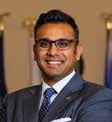
Political Philosophy: Progressive and Practical Experience: Hamilton County Clerk of Courts (2021-Present); Judge Advocate, U.S. Army Reserve (2013-Present); Assistant Vice President, Government Relations Officer & Legislative Counsel, Federal Home Loan Bank of Cincinnati (2015-2022); Adjunct Professor, UC Law (2016-2018); Adjunct Professor, Xavier University (2016-2018); Chief Legal Counsel, Ohio Senate Minority Caucus (2011-2015); Staff Attorney/Bailiff, Judge Nadine Allen –Hamilton County Court of Common Pleas (2011)
CANDIDATE’S
A1: I rely upon lessons learned throughout my extensive and diverse career to lead transformation as Clerk of Courts. Every day I leverage my experiences as an attorney, community leader, educator, business executive, and Army officer to identify and solve the problems facing Hamilton County. Through collaboration and deliberate, sustained action, our team continues to ensure our courthouse works for everyone and strives to fulfill the fundamental American promise of justice for all.
A2: Our initiatives have focused on closing gaps in legal services by expanding the work of our Help Center, engaging in groundbreaking partnerships to bring services out of the courthouse and into the community, and upgrading technology to create efficiencies for the public to request and file critical documents. These efforts have been recognized by local, state, and national entities including the United States Department of Justice as models in breaking down barriers in access to justice.
A3: Remote access to documents offered through the website is a convenience. Removal from the website does not impact its availability to be requested through any other means. In addition, certain statutes (e.g. Marsy’s Law) require shielding of certain documents from public view. We believe in striking a balance
RESPONSIBILITIES: To provide services to the courts, to oversee the county jail, and to act as chief law enforcement officer for the county.
TERM: 4 years.
BASE SALARY: $110,624
QUESTIONS:
Q1: What is your role, if elected, in improving police-community relations and reducing tensions between citizens and County deputies?
Q2: Do you support rehabilitation programs in prison, jail, and in the local community? If so, what rehabilitation programs do you support?
Q3: What changes are your highest priorities to improve County Jail facilities?

Party: Democratic Campaign Political Philosophy: Lifelong Democrat, passionate about fair treatment of people particularly related to a fair system of justice. I believe that improved relationships between law enforcement and the community are critical to ensure a safe community for all. I believe that policies of law and order, fair treatment, fiscal responsibility, safety for prisoners and our community cross political ideology. Strong supporter of labor with the emphasis on safe working conditions, fair wages and benefits for all workers.
Experience: Current sheriff, forty-year veteran, Ham County Sheriff’s Office; first female sheriff and highest-ranking woman to serve; launched new initiatives as sheriff including advanced technology, improved jail conditions, and wellness program for staff. Met budget every year.
Occupation: Sheriff, Hamilton County
CANDIDATE’S QUESTION RESPONSES:
and as sheriff, I enhanced those services. We opened a dormitory-style program for women with substance use disorders which will be followed by a program for men. We enhanced medication assisted treatment for eligible inmates and host a monthly meeting with area providers to ensure connections for continued services upon release.
A3: One of the biggest challenges when taking office in 2021 was an aging jail left unattended by the past administration: cell locks didn’t work, elevators were out of service, windows were broken, and generally uncleanliness. This was a safety risk for inmates and deputies. With support from the County Commissioners, we replaced all the cell locks, the aging elevators, and windows. We also cleaned the jail and are repainting. We don’t need a costly new jail; I will take care of the one we have.
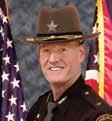
Jim Neil
Party: Republican Campaign Philosophy: Law, peace, and order. Experience: Jim Neil was the former Sheriff of Hamilton County and has spent over 40 years in law enforcement. During his time in the Sheriff’s Office, Jim served in both the jail and patrol divisions, rising from sheriff’s deputy to sheriff’s lieutenant before his retirement in 2011. Jim is trained in traffic-accident reconstruction, as a bomb technician, and as a hazmat technician. He also served as a D.A.R.E. officer and as an instructor in the Basic Corrections Academy and the Basic Patrol Academy, where he served as school commander. During his tenure in the Sheriff’s Office, Jim Neil has received the Greater Cincinnati Jaycees’ Outstanding Young Law Enforcement Officer Award, the Fraternal Order of Police Act of Bravery Award, the Buckeye State Occupation: Retired Sheriff of Hamilton County
A1: I strongly support rehabilitation programs in prison, jail, and the community. As Sheriff, I initiated treatment-focused efforts for addiction and mental health, including partnering with the Talbert House for counseling services and creating detox pods in the jail. I also support evidence-based programs that help inmates reintegrate into society, reduce recidivism, and provide education and job training to ensure they have a path to success after release.
A2: Yes, I support rehabilitation programs in prison, jail, and the community. As Sheriff, I implemented addiction treatment and mental health services, including detox pods and counseling. I also back evidencebased rehabilitation programs like education, job training, and reentry support, helping inmates reintegrate into society.
RESPONSES: No response NOT PICTURED
Party: Libertarian
Biographical info: No response
CANDIDATE’S QUESTION
A1: I will continue with my pledge of leading the Sheriff’s Office with accountability, transparency, dignity, and respect. Our brand is service, and my focus will continue to be community safety. I established a Community Advisory Board with diverse representation and established the Community Affairs Division that responded to over 100,000 calls for assistance. We have improved training for all deputies that includes deescalation, communication skills, and community policing practices.
A2: This is one of the hallmarks of my administration and career. When I was major of the jail, I established first-of-itskind rehabilitation services for inmates
A3: My top priorities for improving County Jail facilities are building off of my previous successes by increasing staffing levels to ensure safety, expanding mental health and addiction treatment programs, and upgrading outdated infrastructure. I will focus on creating a more secure environment by improving officer recruitment and retention while also prioritizing inmate rehabilitation through evidence-based programs.
RESPONSIBILITIES: To record deeds, mortgages, plats, liens, and other written instruments.
TERM: 4 years.
BASE SALARY: $78,594
QUESTIONS:
Q1: If elected, what will be your top 3 priorities?
Q2: In what way(s) would you make information held by the Recorder’s Office more easily available to the public?
Q3: How will you improve fraud detection and/or prevention?
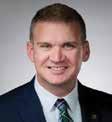
Party: Democrat Political Philosophy: Liberal Occupation: County Recorder
Experience: I am the current incumbent Recorder. My current term began January 4, 2021. I served four years active duty in the United States Marine Corps. I served as a prosecutor in the Marines, I was also designated as a Special Assistant United States Attorney with the Department of Justice, and I served as a prosecutor with the City of Cincinnati.
CANDIDATE’S QUESTION RESPONSES:
A1: 1. Continue using innovative technology. In 2022 we launched our award-winning Notification System. Currently, we are installing a new Records System. The new system continues our proud tradition of using technology to improve performance. 2. Expand outreach with veterans. In 2023 we launched our award-winning Veterans Outreach Program. We offer FREE veteran services and want to expand outreach. 3. Complete back-scanning with newly enacted SB 94. SB 94 provides reimbursed funding from the State.
A2: Under my leadership we have accomplished this. All deeds from 1787 to present are accessible and viewable on our website for FREE. This means information held by my office is available 24/7 to the public with remote and online access. Anyone can go to our website to retrieve, view, and print their deed for FREE. You can also contact us via email or phone during normal business hours and we will get you a copy of your deed for FREE.
A3: Under my leadership we have accomplished this. In April 2022 we launched our award-winning Notification System. It is FREE for residents to register. Once registered, the system sends email notifications if anything is filed in our office using your name. This means you will receive email notifications if anyone tries to tamper with your property records or tries to steal your home via deed fraud. This system has improved both fraud detection and prevention in Hamilton

David W. Heimbach
Party: Republican Political Philosophy: As demonstrated during my years of public service at the Board of Elections, I would continue to provide the same level of exceptional service to all users of the County Recorder’s office, regardless of political philosophy. Experience: 1) Former Election Official: Fiscal & Budget Officer and Administrative Associate; 2) Former Marketing Researcher and Customer Satisfaction Researcher
CANDIDATE’S QUESTION RESPONSES:
A1: 1) Exceptional Service: I will ensure complete and timely receipt, retention, and delivery of records and documents, effectively and efficiently. 2) Continuous Improvement: I will understand Recorder’s office users’ needs and optimize digital technology opportunities, providing leadership for setting standards and best practices. 3) Fiscal Responsibility: I will manage budget appropriations, maintaining financial sustainability.
A2: I have 7.4 years of public sector service as an Election Official at the Hamilton County Board of Elections department of Administration, including the position of Fiscal & Budget Officer. My private sector background and experience includes 20+ years in marketing research and customer satisfaction research, including research in the field of electronic database record and document retention and retrieval, as well as website user experience optimization.
A3: I would continue and update services alerting citizens of Hamilton County regarding activities of fraud involving records maintained at the County Recorder’s office. Updates would take advantage of ongoing information technology advances and opportunities.
RESPONSIBILITIES:To oversee the construction, maintenance, and repair of all bridges in the county, and of county roads and other public improvements except buildings in the county.
TERM: 4 years.
BASE SALARY: $114,914
QUESTIONS:
Q1: What are your qualifications for this office?
Eric J. Beck
RESPONSIBILITIES: To collect taxes in the county and its subdivisions, disburse expenditures, and invest the county’s funds.
TERM: 4 years.
BASE SALARY: $80,807

Jill Schiller
Party: Democratic Occupation: Hamilton County
Treasurer
Political Philosophy: I am a proud member of the Democratic Party.
Experience: Serving current term as treasurer
CANDIDATE’S QUESTION RESPONSES:
A1: I have been in office now for 3 years and have brought the office to the community. We’ve held 8 community events to connect folks with aid for property tax and mortgage relief, as well as other non-profit help. We hired a Hamilton County firm to manage Hamilton County investments. We have consistently reduced our general fund budget requests while raising starting salaries in our office to $20/hr (total
RESPONSIBILITIES:To determine the cause of death of persons dying in a violent or suspicious manner and to issue death certificates.
TERM: 4 years.
BASE SALARY: $130,661
QUESTIONS:
Q1: What are your qualifications for this office?
Q2: What are your plans for improving operations or efficiency in the Coroner’s Office?
QUESTIONS:
Q1: What are your qualifications for this office?
Q2: The Treasurer collects property taxes and is on the County Board of Revision. What could be done to help homeowners better understand why their taxes have increased and how to challenge property values?
reduction as of today ~$414,000). I look forward to continuing my service to the county.
A2: I have been doing as much as possible to help educate homeowners on the reasons behind the recent tax increases, including in-person meetings, and newspaper, television and radio interviews. We are encouraging folks to contact their state reps and senators to demand they enact the change we need in taxation methods, school funding, and Homestead and Owner-Occupied credit reform.

CANDIDATE’S QUESTION RESPONSES: No response NOT PICTURED NOT PICTURED
Party: Republican
Biographical info: No response4
CANDIDATE’S QUESTION RESPONSES:
Voting is not the final step but a starting point for taking an active part in government. Hold your elected officials accountable by asking questions, attending meetings and speaking out about the issues important to you and your family. We don’t have to go to Washington, DC. We can be heard from here.
Biographical info: No response
Party: Democratic Campaign Political
Philosophy: Government should be about improving the lives of the people we serve.
Experience: 12+ years as coroner, 30 years as a neuroradiologist
Education: MD
CANDIDATE’S QUESTION RESPONSES:
A1: I have been serving the people of Hamilton County in this role for over 12 years. During that time I have been on the forefront of the opioid crisis, violent crime and baby deaths in our region. I have given many talk to students in multiple schools stressing the importance of staying in school and staying off drugs. During the last dozen years, I have spearheaded and help design and build our new state of the art Coroner’s office and Crime Laboratory.
A2: I and my team constantly monitor our operations and improve efficiency regularly. We have been receiving multiple requests from all over the country to do forensic work. We are now providing services for a much larger region. Also, we have applied for and received multiple grants. Therefore, we are generating revenue and decreasing the overall cost to the taxpayors.
REPLACE THE CURRENT POLITICIANRUN REDISTRICTING PROCESS
SUMMARY BY LEAGUE OF WOMEN VOTERS OF OHIO:
A “yes” vote supports amending the Ohio Constitution to:
• Create the Ohio Citizens Redistricting Commission, composed of 15 Ohio citizens, to replace the current 7-person redistricting commission, composed of 3 elected statewide officials and 4 state legislators or their representatives;
• Assign the commission responsibility for drawing district lines for the Ohio House of Representatives, the Ohio Senate, and the Ohio seats in the U.S. House of Representatives;
• Provide that the commission is balanced with 5 members who are affiliated with each of the state’s two major political parties and 5 members who are independents;
• Provide that the members of the commission be chosen through a bipartisan process that uses the services of 4 retired court of appeals judges and in which applicants determined to be qualified to serve on the commission (by the retired judges) are identified and ultimately selected through a largely random process;
• Require that commission members have shown an ability to conduct the redistricting process with integrity and fairness and do not have any conflicts of interest;
• Prohibit service on the commission by the following persons and their immediate family members:
• Persons who are currently serving or have recently served in (or candidates for) federal, state, or local offices;
• Persons who have or are currently serving or recently served as staff members, paid consultants, or contractors for any elected official or candidate for any federal, state, or local office;
• Persons who are currently serving or have served as officers, paid consultants, or contractors to any political party, political action committee, or campaign committee;
• Persons who are currently or have recently been registered lobbyists or legislative agents in Ohio;
• Provide that each redistricting plan contain single-member districts that are geographically congruent, that comply with federal law, and that preserve communities of interest;
• Define communities of interest as communities of people with broadly shared interests and representational needs, including counties, municipal corporations, townships, and school districts;
• Ban partisan gerrymandering and the adoption of plans that favor or disfavor a political party by requiring that the statewide proportion of districts in a redistricting plan that favors each political party shall correspond closely to statewide partisan preferences of Ohio voters;
• Provide that no redistricting plan shall be drawn with consideration of the place of residence of any incumbent elected official or any candidate for state or congressional office;
• Require that the commission operate in a transparent public way, that all its deliberations and actions be in public meetings, and that its actions require an affirmative vote of at least 9 of 15 members;
• Require holding 5 public hearings throughout the state prior to the adoption of draft redistricting plans, 5 public hearings after the adoption of draft redistricting plans, and 2 public hearings after the adoption of final redistricting plans;
• Require the General Assembly to appropriate not less than $7 million in 2025 for expenses of the commission with an additional appropriation for legal expenses;
• Require that redistricting plans adopted by the commission be used for the 2026, 2028, and 2030 elections, and that district lines be re-drawn every 10 years thereafter based on U.S. Census data;
• Replace the redistricting plans adopted for the 2022 and 2024 elections;
• Continue to give the Ohio Supreme Court original and exclusive jurisdiction to resolve disputes concerning compliance of redistricting plans with the proportionality and incumbency protection requirements;
• Provide procedures for removal for cause of commissioners and for the filling of any commissioner vacancy; and
• Create a procedure for resolving any impasse or stalemates in determining which redistricting plans to approve by having members of the commission rank their favored plans and vote preferentially until adoption of a plan by a majority vote.
A “no” vote opposes amending the Ohio Constitution to create a new redistricting commission. This, then, allows the current procedures for redistricting state and congressional seats to remain in effect.
Supporters say:
• The amendment creates a new independent body, the Ohio Citizens Redistricting Commission, to draw district lines for the General Assembly and the Ohio seats in the U.S. House of Representatives.
• The 15-member commission is balanced with 5 members affiliated with each of the state’s major political parties and 5 members who are independents.
• The amendment creates a bipartisan process for selecting commission members.
• The amendment removes politi-
cians and political influence from the redistricting process by prohibiting elected officials, candidates, their staffs, political organizations, lobbyists, and immediate family members of these groups from serving on the commission.
• The amendment prohibits partisan gerrymandering of the General Assembly and the Ohio seats in the U.S. House of Representatives.
• The amendment requires that each redistricting plan contain geographically congruent districts that comply with federal law and preserve communities of interest.
• The amendment defines communities of interest to include counties, municipal corporations, townships, and school districts as well as communities of people with broadly shared interests and representational needs.
• The amendment prevents incumbency protection by barring any redistricting plan from considering the place of residence of any incumbent elected official or any candidate for state or congressional office.
• The amendment creates an open and transparent process by requiring that all commission deliberations and actions be in public meetings, and that actions by the commission require an affirmative vote of at least 9 of 15 members.
• The amendment creates a process to resolve any impasse so that the General Assembly cannot adopt its own redistricting plans. Opponents say:
• The amendment creates a redistricting commission to replace the constitutional amendments approved by Ohio voters in 2015 and 2018.
• The amendment removes elected statewide officeholders and state legislators from the process of drawing district lines for the General Assembly and for the Ohio seats in the U.S. House of Representatives.
• The amendment creates a nonelected commission.
• The amendment adopts procedures for selecting the members of the commission that are complex.
• The amendment permits the commission to hire consultants to assist in the drawing of districts.
• The amendment limits the right of Ohio citizens to freely express their views on redistricting to members of the commission and the commission staff.
• The amendment promises to end partisan gerrymandering but requires that the statewide proportion of districts that favor each political party correspond closely to statewide partisan preferences of Ohio voters.
• The amendment does not require districts to be compact.
• The amendment does not sufficiently respect the need to draw district lines that do not split counties, municipal corporations, townships, and school districts.
• The amendment does not permit members of the commission to be removed by the General Assembly.
• The amendment abolishes the historic tradition of having elected officials draw congressional and state legislative districts – elected officials who are directly accountable to Ohio voters.
• The amendment seeks to make significant changes in redistricting but ignores the reality that redistricting is inherently political and that one cannot take politics out of politics.
The Hamilton County Board of Commissioners proposes tax levies to support certain public services. The proposed levies go before the electorate for approval. If approved, the levies appear on the tax bill for Hamilton County property owners.
The Commissioners appoint a citizen Tax Levy Review Committee (TLRC) to study levy requests and to advise the Commissioners whether a levy should appear on the ballot, the appropriate size and duration for each levy; and terms and conditions that should be inserted into contracts.
Prior to the placement of each levy on the ballot, the TLRC engages a consultant to review finances and programs funded by the levy and holds public hearings. At the completion of its review, the TLRC sends a written report of findings and recommendations to the Board of County Commissioners. The Commissioners make the final decision regarding the levy that is placed before the voters. If a levy is approved by voters, the TLRC is responsible for conducting a mid-term performance review to see that budget targets and contractual obligations are being met.
For more information about TLRC, including membership, levy procedures and reviews, see www.hamiltoncountyohio.gov/ government/open_hamilton_county/projects/tax_levy_ review_committee
TAX LEVY (RENEWAL)
A majority affirmative vote is necessary for passage.
A renewal of a tax for the benefit of Hamilton County for the purpose of supplementing the general fund to provide family services and treatment programs, including those currently provided by Talbert House that the county auditor estimates will collect $6,765,000 annually, at a rate not exceeding 0.34 mill for each $1 of taxable value, which amounts to $7 for each $100,000 of the county auditor’s appraised value, for 5 years, commencing in 2024, first due in calendar year 2025.
League Explanation and Background:
The Family Services and Treatment (FST) levy is a renewal of an existing levy of .34-mill on residential and commercial property for family services and treatment programs for five years. It will cost the owner of property valued at $100,000 approximately $7.00 per year which is the current annual cost. The Family Treatment and Services levy was first approved by voters in 2009 and most recently renewed in 2019.
What The Levy Will Do: The levy funds alternatives to incarceration that educate, rehabilitate and retrain offenders who have alcohol and drug addiction and mental illness associated with criminal behaviors under a county policy to reduce recidivism and preserve limited jail space for the most serious offenders. The levy also supports community based anti-drug programs. The levy will provide approximately $6.5 million a year for five years for Talbert House, Change Court, Veteran’s Court, Hamilton County Office of Reentry, Drug and Recovery Court and various other agencies. Talbert House is contracted to provide most of the services under their auspices.
The Family Services and Treatment Levy:
• Provides judges in Municipal and Common Pleas courts with alternatives at sentencing that help reduce recidivism by treating alcohol and drug addiction and mental health issues.
• Provides reentry services and security that stops the revolving door back to jail.
• Supports County Prison Reentry Programs, facilitated by Sheriff, and non-profit agencies like Talbert House and PreventionFirst.
• Funds programs for effective drug prevention, treatment and recovery services.
PROPOSED TAX LEVY (RENEWAL)
A majority affirmative vote is necessary for passage.
A renewal of a tax for the benefit of Hamilton County for the purpose of providing funds for community developmental disabilities programs, including the operations and maintenance of schools, workshops, clinics, residential facilities, and such other services, that
the county auditor estimates will collect $79,728,000 annually, at a rate not exceeding 4.13 mills for each $1 of taxable value, which amounts to $76 for each $100,000 of the county auditor’s appraised value, for 5 years, commencing in 2024, first due in calendar year 2025.
League Explanation: The Hamilton County Developmental Disabilities Services (HCDDS) proposed levy is a 4.13 mills flat property tax on residential and commercial property in Hamilton County to provide funding for services for infants, children, and adults with developmental disabilities. The levy is estimated to provide revenue of around $75 million annually for Developmental Disabilities Services for 5 years. It will cost the owner of a property valued at $100,000 approximately $76 per year.
What the levy will do: Property tax levy funding provides approximately 80% of funding for HCDDS. The levy funding allows HCDDS to pay matching funds required to access Medicaid Waivers, thereby securing $5 in federal and state funding for every $1 locally. The levy fund provides services for nearly 10,000 children, youth and adults including case management, schools, adult centers, infant therapy, family support and housing support. HCDDS operates two schools to support students with significant disabilities in Hamilton County. The levy funds services like in-home care, job coaching, and transportation.
Background: The Developmental Disabilities Services is a county organization, established and required by state law to serve people with developmental and intellectual disabilities manifested before age 22 and includes lifelong intellectual or physical disabilities. The Developmental Disabilities levy was last passed in 2019. This year’s renewal levy will bring in the same total tax funding, but is less millage because of the increase in county property values.
The Tax Levy Review Committee did a comprehensive review of HCDDS finances and spending under the current levy and recommended a renewal levy. It noted that HCDDS had increased costs, but the increases could be covered over the term of this 5-year levy by reserves from Federal pandemic funding.

The League of Women Voters is a nonpartisan political organization encouraging informed and active participation in government. It influences public policy through education and advocacy. We never support or oppose any political party or candidate.
JOIN: DONATE:


US PRESIDENT AND VICE PRESIDENT
F Richard Duncan / Mitchell Preston Bupp
F Kamala D. Harris / Tim Walz (D)
F Chase Oliver / Mike ter Maat (L)
F Jill Stein / Anita Rios
F Donald J. Trump / JD Vance (R)
US SENATE
F Sherrod Brown (D)
F Bernie Moreno (R)
US HOUSE
REPRESENTATIVE
District 1
F Greg Landsman (D)
F Orlando Sonza (R)
District 8
F Warren Davidson (R)
F Vanessa Enoch (D)
OHIO SUPREME COURT Term Commencing 1/3/2025
F Michael P. Donnelly (D)
F Megan E. Shanahan (R)
F Joseph T. Deters (R)
F Melody J. Stewart (D)
Unexpired Term Ending 12/31/2026
F Lisa Forbes (D)
F Daniel R. Hawkins (R)
OHIO STATE SENATE
District 8
F Louis Blessing III (R)
F Timothy S. Hogan (D)
OHIO STATE HOUSE OF REPRESENTATIVES
District 26
F John Breadon (R)
F Sedrick Denson (D)
District 27
F Rachel Baker (D)
F Curt Hartman (R)
District 28
F Karen Brownlee (D)
F Jenn Giruoux (R)
F Regina Collins (Write-In)
District 29
F Cindy Abrams (R)
F Joseph Alan Salvato (D)
District 30
F Stefanie Hawk (D)
F Mike Odioso (R)
District 25
F Jim Berns (R)
F Cecil Thomas (D)
District 24
F Dani Isaacsohn (D)
F John Sess (R)
HAMILTON COUNTY
COMMISSIONER
Hamilton County
Commissioner Term
Beginning 1/2/2025
F Kyle Dupler (L)
F Jonathan Pearson (R)
F Alicia Reece (D)
Hamilton County
Commissioner 1/3/2025
F Denise Driehaus (D)
F Adam Koehler (R)
F Leandro A Llambi (L)
HAMILTON COUNTY AUDITOR
F Tom Brinkman (R)
F Jessica E. Miranda (D)
HAMILTON COUNTY APPELLATE COURT JUDGE
Hamilton County Court of Appeals Judge (District 1) - Term
Beginning 2/9/25
F Sean M. Donovan (R)
F Terry Nestor (D)
Hamilton County Court of Appeals Judge (District 1) - Term
Beginning 2/11/25
F Candace Crouse (D)
F M. Elizabeth Polston (R)
Hamilton County Court of Appeals Judge (District 1) - Term
Beginning 2/12/25
F Robert A. Goering (R)
F Rich Moore (D)
Hamilton County Court of Appeals Judge (District 1) - Term
Beginning 2/10/25
F Stacy Lefton (R)
F Marilyn Zayas (D)
HAMILTON COUNTY
COMMON PLEAS JUDGE
Hamilton County Court of Common PleasGeneral Division - Term
beginning 4/1/2025
Vote for no more than two (2).
F Leslie Ghiz
F Chris Lipps
F Bernard Mundy
F Virginia Tallent
F Robert C. Winkler
Hamilton County Court of Common PleasGeneral Division - Term
Beginning 1/1/2025
F Katie Casch
F Steve Simon
HAMILTON COUNTY
PROSECUTOR
F Connie Pillich (D)
F Melissa Powers (R)
HAMILTON COUNTY CLERK OF COURTS
F Mary Hill (R)
F Andrew Olding (L)
F Pavan V. Parikh (D)
F HAMILTON COUNTY SHERIFF
F Charmaine McGuffey (D)
F Jim Neil (R)
HAMILTON COUNTY RECORDER
F Scott Crowley (D)
F David W. Heimbach (R)
HAMILTON COUNTY TREASURER
F Jeff Baker (R)
F Jill Schiller (D)
HAMILTON COUNTY ENGINEER
F Eric J. Beck (R)
HAMILTON COUNTY CORONER
F Lakshmi Kode Sammarco (D)
ISSUES
1 PROPOSED CONSTITUTIONAL AMENDMENT
F YES
F NO
34 PROPOSED TAX LEVY (RENEWAL) HAMILTON COUNTY
F FOR THE TAX LEVY
F AGAINST THE TAX LEVY
35 PROPOSED TAX LEVY (RENEWAL) HAMILTON COUNTY
F FOR THE TAX LEVY
F AGAINST THE TAX LEVY
YOUR LOCAL ISSUES




Author Kirstin Valdez Quade discusses multigenerational novel, The Five Wounds, ahead of Cincinnati appearances.
BY MACKENZIE MANLEY
Kirstin Valdez Quade did not initially envision her 2009 short story The Five Wounds as a fulllength novel. But that’s what it became.
“My now-editor emailed after the story came out and asked if I had considered turning it into a novel,” says Quade. “I wrote back very nicely, but said, ‘Absolutely not. I’m done. I’m working on other stories.’”
A few years later, Quade was looking through story drafts and found three that dealt with similar themes, characters and settings.
“I realized in a flash that it was the exact same family constellation that I’d been dealing with in the story The Five Wounds,” recalls Quade. “They were different ages and it was at different points in their lives, but I thought, ‘Oh, wow. Maybe I actually am working on a novel.’”
Published in 2021, the novel takes readers through the lives of the Padilla family, a multi-generational Latin American family living in the fictional city of Las Penas, New Mexico. Quade has crafted characters that feel all too real as they face issues like addiction, young motherhood, unemployment and fractured relationships.
CityBeat caught up with Quade ahead of her talk at the University of Cincinnati’s Visiting Writers Series, where she will appear on Nov. 7 at 5:30 p.m. for a fiction reading and again on Nov. 8 at 3:30 p.m. in conversation with her literary agent, Denise Shannon. Both events take place in the Elliston Poetry Room, in Langsam Library.
The novel opens with 33-year-old Amadeo, a mess of a man who has been given the role of Jesus in the Good Friday procession. Then there’s Angel, his 15-year-old pregnant daughter who shows up at his doorstep determined to make a better life for her and her baby. Her arrival at Amadeo’s comes after leaving her mother, Marissa. Readers also
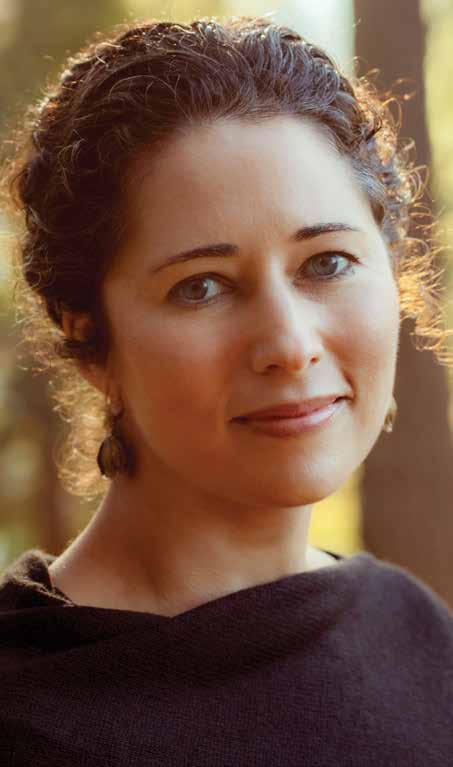
meet Yolanda, Amadeo’s mother, who learns that she’s terminally ill –– a fact she keeps secret.
One of the things that drew Quade to the Padillas was their inter-generational dynamics. Each character has their own needs and is facing a different era in life, be it coming-of-age, seeking redemption, navigating motherhood or facing mortality. When asked about the process of shifting into each character’s mindset, Quade replies that was one of her “great pleasures” in writing The Five Wounds
“Some of them were more fun than others,” says Quade. “Amadeo, I will say, was the hardest to be because he feels sorry for himself. He doesn’t have a ton of self-awareness, although he works on it over the course of the novel. When I got fed up with him, as I think the reader does, too –– and certainly his family members do –– I was then able to switch to other points of view.”
Quade notes that though Yolanda’s
point of view was sad to be in, it’s also the first time in the character’s life that she’s making decisions based solely on her wants and not others’ needs. There’s a sense of liberation to Yolanda’s storyline, despite her illness.
“Angel was the most fun to be with because she’s hopeful,” says Quade. “She’s funny. She’s smart in that she’s looking at the adults around her and judging them. I’m a teacher, and I like spending time with young people, and so it was fun to be in her perspective.”
Quade is currently an associate professor at Princeton University. The Five Wounds won the Center for Fiction’s First Novel Prize and the Rosenthal Family Foundation Award. It was also a finalist for the PEN/Hemingway Award, along with an array of other recognitions. Her work has appeared in The New Yorker, The Best American Short Stories, The O. Henry Prize Stories, The New York Times and more.
The Nov. 8 event, in particular, will give aspiring writers and students the chance to learn about the literary agent-writer relationship. Quade praises her agent, Shannon, citing her ethical approach and no-nonsense attitude. They connected through one of Quade’s professors, the late Ehud Havazelet.
“He taught me more about writing, I think, than any other teacher,” says Quade. “After I graduated and started publishing stories, he put me in touch with her. He gave me so many gifts as I was learning to write. He changed the way I think about fiction and think about my characters and my responsibilities toward my characters. But Ehud also gave me the gift of Denise.”
Pervading through The Five Wounds is a sense of hope, even when the circumstances feel dire. In penning the novel, Quade says that she knew she wanted a happy ending for her characters and for them to be better off than when the reader first meets them.
“I wanted that ending to be hard-won for them. I wanted them to have gotten there on their own,” says Quade. “I also wanted to write about love. I wanted to write about romantic love and sexual attraction. I wanted to write about family love, too.”
The Five Wounds includes two things that often appear in Quade’s work: the setting of New Mexico and Catholicism. Of the latter, Quade says that it has been a part of the fictional project from the start. For one, she’s figuring out the role it plays in her life, too.
“It’s shifted over time and yet remains really important,” says Quade of her relationship with Catholicism. “A lot of it grows out of the time I spent as a very young child with my great-grandmother and grandmother. It’s the sense that there are these other forces, that miracles are possible and the richness of story and mythology that was always really, really compelling to me.”
As for New Mexico, it’s the place Quade considers home: It’s where she was born and where her family has lived for centuries. Though she, her mother and her dad moved a lot when she was a child, Quade says her grandmother’s home in New Mexico was still always home.
“When I’m there, I’m never experiencing it as it is now, entirely,” says Quade. “That’s one layer, but I always have this sense of transparencies laid on top of each other. I’m experiencing it through the stories my grandfather told me about when he was a little boy and first moved to Santa Fe. All of those versions of it are there. A large part of why I write is to return home.”
The University of Cincinnati will host two events with Kirstin Valdez Quade as part of their Visiting Writers Series on Nov. 7 and 8. More info: artsci.uc.edu.



REVIEW BY RICK PENDER

When news of Cincinnati Playhouse’s production of Rutka: A New Musical came out — a story based on a young Jewish girl’s diary during World War II — some people wondered if it might be similar to The Diary of Anne Frank. Truth to tell, these are different stories, even though both girls were born on the same day, June 12, 1929. Frank and her family hid in an attic during the German occupation in Amsterdam; Rutka Laskier’s family, trapped in a Polish ghetto, lived more open lives. Both girls eventually died tragically in deathcamps — Laskier in 1943 and Frank in 1945.
Both of them sensitively recorded their thoughts in diaries, chronicles of being teens living through horrendous times, that resurfaced years later. But they were very different young women: Anne was secluded and introspective, while Rutka faced and pushed back against some of the terrors swirling around her and her friends. She was a prescient adolescent who aspired to be a writer. Her story is now a new musical that’s receiving its first pre-Broadway tryout at the Playhouse. It employs an indie-rock score by Jocelyn Mackenzie and Jeremy LloydStyles and a book by playwright Neena Beber.
Nationally respected director Wendy C. Goldberg has assembled a cast of eight young actors to bring Rutka and her friends to vivid life. They are 18 to 20
years old, but they convincingly bring to life Rutka, a very wise 14-year-old (played with spark and sensitivity by Lana Schwartz), and the boys and girls whose school closed. Seeking to establish her own character, Rutka has bobbed her hair and wears pants in public, much to the dismay of her girlfriends. These teens have naïve notions about love and think little at first to push back against authority. As increasingly dire circumstances tear apart friendships and families, innocence is soon stripped away.
Nevertheless, Rutka’s optimism shines through to give the musical an unexpected uplift. Her 20-year-old knowing gentile friend Stasia (Delaney Brown), whose family owns the apartment building where Rutka’s family lives, describes the wonders of a first kiss and how to navigate opening one’s heart. Rutka’s parents, Yaacov (Ben Cherry) and Dvorah (Bex Odorisio), are deeply worried about what the future holds.
Mackenzie and Lloyd-Styles’ energetic and uplifting score with 18 numbers, performed by a six-musician band, supports the full range of emotions portrayed in Rutka’s diary entries. “Someday Soon” records her family’s yearning to escape the horrendous things bearing down on their lives. When their school is closed down, this tight-knit band of teens try to sustain their educations, even as serious-minded scholar Lolek (Dillon Klena) tries to open their eyes to the
awful things closing in on them. When their books are burned, reality takes a stronger hold.
Lording over their lives is an ominous gray stone wall, tilted at a dangerous angle, perhaps suggesting an imbalanced world. Todd Rosenthal’s grim scenic design is a constant reminder of the dire world’s imposition on these young lives. Lighting designer Josh Epstein gives the show moody shadows and pinpoint pools of light to underscore the music’s emotions. The Playhouse’s new Rouse Theatre is used to maximum purpose with scenes elevating through the stage floor and descending from the overhead fly space.
As the first act winds down, Lolek urges his friends to “Face It,” but they remain uncertain about how to address what’s happening. An “Aktion” is announced at the town stadium, a sorting of the residents to assign numbers for future disposition: “One” means returning home; “One A,” sent to a work camp; “Two,” subject to inspection; and “Three,” deportation — to certain death. “Judgment Day” closes the 80-minute first act with Rutka receiving the One A designation and deciding to resist.
In the briefer second act, Rutka resolves to do what she can, even if it’s merely survival. She has some success recruiting her friends. But without much hope, Rutka calls on God to help “The Innocent Ones.” She meets with Janek
(Ayden Weinstein), the ardent but shy boy she’s had a secret crush on, and they consider their futures. She uses her words to create a magical setting for their first kiss. It’s a lovely, rhapsodic moment, made all the more poignant by the inevitable realities about to overwhelm them. Rutka journaled her thoughts and emotions in a secret diary that would have been destroyed if discovered in 1943. She hid it in a safe place, hoping her friend Stasia would find it. The show opens and closes with the young actors reading passages written by Rutka, emotional and insightful. It’s a wonderful frame for the story, beautifully setting up the song “If I Ever Forget Your Name,” recalling her friends who autographed a page in her diary. The show closes with the song “Today,” answering “Someday Soon,” the number that opened Rutka’s story. The final line, “Someday is today,” is a hopeful note to end this story of a too-brief young life.
Rutka is a powerful story that blends tragedy and hope, one that needs to be told in today’s world. It’s reassuring that this show has received a splendid production here in Cincinnati. Let’s hope Rutka’s message reaches more audiences — perhaps on Broadway.
Rutka: A New Musical, produced by Cincinnati Playhouse in the Park, continues through Nov. 10. More info: cincyplay.com.




BY ANNE ARENSTEIN
Pete Jutras took over as dean of University of Cincinnati’s College-Conservatory of Music and Thomas James Kelly Professor of Music on Aug. 1, arriving with an impressive background in teaching, administration and innovation. He taught piano and piano pedagogy at the University of Georgia Hugh Hodgson School of Music for 18 years, receiving national recognition for his work. His numerous publications include compositions for piano, which can be heard on Spotify.
Jutras served as associate director of research studies and graduate studies at HHSOM before being named director in 2019.
Despite the awards and plaudits, Jutras is soft-spoken and modest about past accomplishments. Although he’s still finding his way around the campus and CCM itself, Jutras has a clear vision of his priorities for the world-renowned arts programs.
“CCM is an amazing place. It’s on every musician’s radar,” he says, adding, “CCM was on my radar when I was auditioning for schools. I was familiar with CCM’s music side, but I quickly found out about the reputations of the dance, theater and electronic media programs.”
CCM’s organizational model also attracted Jutras. “There are a lot of arts colleges that include the visual arts, but to have a college that’s really focused on performance and production is rare and exciting. I threw my hat in the ring.”
Even with national acclaim for its programs, Jutras acknowledges an immediate concern. “Like it or not, resources are always a challenge. The most important part of my job is securing the resources our students and faculty need so they can succeed.”
Post-COVID, CCM has been struggling. A decline in state funding coupled with a slowdown in private support led to fewer dollars for all of CCM’s programs, which had an impact on recruiting students and faculty.
“It’s great that CCM is one of the top schools for the arts, but it’s very competitive, like recruiting athletes,” Jutras says. “When you’re up against schools that are well-endowed, that’s a challenge.”
Jutras took on the challenge almost immediately, meeting with donors, but there were more than financial requests on the agenda.
“I wasn’t asking for money — I asked for help to find other donors who can build our base of supporters. We need to recruit, and it’s gotten to be an ‘arms race’ in scholarship dollars.”
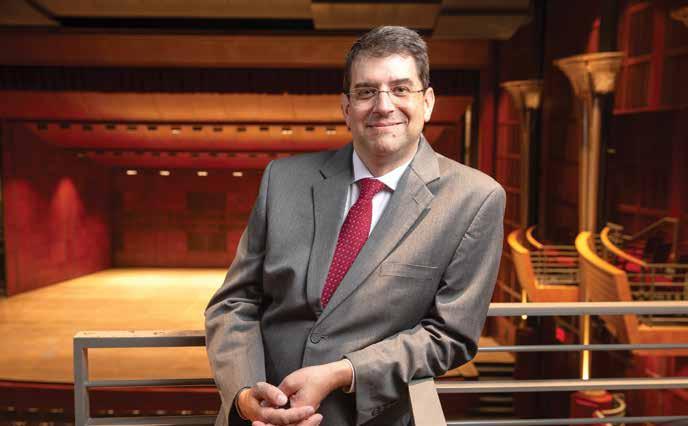
Jutras plans to work with faculty to recalibrate programs for a rapidly changing arts marketplace.
“It’s not just post-COVID, but post streaming,” he says. “The way the world consumes performing arts has changed dramatically. We need to figure out how we can adjust our teaching and curriculum so our students can succeed in this new world.”
With less than seven weeks in the leadership role (as of this interview), Jutras has high praise for his faculty colleagues.
“I’m amazed at what this faculty has accomplished with limited resources,” he says, citing a recent performance of Mahler’s epic Symphony No. 2, the “Resurrection” Symphony, for a large orchestra, chorus and vocal soloists.
“It was wonderful!” he recalls. “The hall was sold out, something I was told hasn’t happened in recent years.”
“When you’re in that environment and you realize how good this place is, that’s what we need to build on. I’m focusing on the good that’s here. I want to tell the faculty I’ll try to figure out how to get the resources so you can do your job.”
Jutras is recognized for innovative community engagement, especially for the Hip Hop Harmonic at the University of Georgia, a project he quickly credits to HHSOM faculty and Montu Miller, a hip-hop advocate in Athens, Georgia.
“We partnered student composers
and faculty with hip-hop composers and some real magic happened,” Jutras explains. “It wasn’t about the creation of the art but what we each learned about the processes.”
“Hip-hop musicians are like, ‘What rehearsal? We’re going to jam,’” he chuckles. “We started understanding different approaches to creativity.”
Jutras adds that Miller provided a critical insight into community engagement.
“He said people always talk about building bridges, but they never talk about going over to the other side and living there. We wave at each other from across the bridge, but we need to get into another world to understand it.”
Jutras hopes to pass those words on to students who face a tight or nonexistent job market. “We need to help students convey the message that their art is worth experiencing,” he says. “Whether it’s in a place with no dance company, no theater or no chorus, if they can get people excited, they can create a market for the arts.”
Jutras acknowledges that engaging with Cincinnati’s many arts and education communities is a long-term commitment and he’s already begun to meet with the Cincinnati Symphony Orchestra and the Cincinnati Opera, and also plans to meet with Cincinnnati Public Schools staff.
“We need to get out there and help people have more access (to the) arts
and build more partnerships,” Jutras says. “I like to think we have a lot of capital to offer in our amazing students, how can they benefit the community, how can the community benefit us and how can we learn from each other. I would like to live in a world where everyone has access to the arts and creativity. It’s not hyperbolic to say it can save lives.”
Jutras adds that Cincinnati’s vibrant arts scene enhances the potential for engagement. “This is a city that loves its art,” he says. “The ability to be close to the CSO, the Playhouse, Cincinnati Opera, all these organizations, is great. It’s an amazing ecosystem!”
Another impressive component is a strong Suzuki music education community. Jutras’s wife Kristen Jutras is a violinist and a certified Suzuki Method Teacher Trainer. Pete Jutras proudly points out that her class in Suzuki pedagogy is full.
When asked if the community will get to hear him play, Jutras doesn’t say no. But the students come first.
“My guiding principle is, are we helping our students, providing them resources and access so they can really succeed. I want to be very clear that I want to continue the excellence that’s already here. We want to keep that going.”
To learn more about Pete Jutras, visit researchdirectory.uc.edu/p/jutraspr.






BY KATHERINE BARRIER
Trying a new cuisine or new food can be scary, especially the foods that get a bad rap thanks to their polarizing effects on diners, like pickles, oysters and mushrooms. But, we all have different tastebuds and we won’t know how we feel about a food until we try it. You may even need to try it a couple times throughout your life to see if your mind has changed.
It’s also how a food is prepared that makes a ton of difference. You’re probably not going to like something overcooked or not well-seasoned. But Greater Cincinnati is home to tons of culinary talent who can whip up dishes using these divisive foods and ingredients to wow tastebuds and maybe even change a few minds. Keep scrolling to see which foods scare diners the most, and which Greater Cincinnati restaurants do those foods justice.
1220 Vine St. Over-the-Rhine
If you’re not a fan of oysters, you may just not have tried one suited to your tastebuds yet. While oysters overall have a salty and briny flavor and chewy texture, flavors vary depending
on where they come from. Atwood Oyster House offers a rotating selection of oysters from several North American regions, including New England, Prince Edward Island, Nova Scotia and British Columbia. Their menu tells you exactly what flavors you can expect, like the sweet and salty, with earthy undertones, Moonakiss oyster from Waquoit Bay, Massachusetts, or the briny and bright, with green notes, Fortune Bad Boy oyster from Whitehead, Nova Scotia.
602 Main St., Covington
If there’s one green food from our childhoods that pops into all our minds when we think of our parents scolding us to, “Eat your vegetables!” it’s the humble Brussels sprout. To be fair, unflavored or only lightly flavored Brussels sprouts don’t cut it for most of our tastebuds, coming off as bland and unappealing. But that’s not the case for Frida’s Brussels sprout tacos. These unique tacos feature perfectly sautéed, crunchy Brussels sprouts; peanuts and a smoked peanut salsa for some sweetness and nuttiness with the sprouts and added crunch; and classic cilantro and onion.
Mushrooms: Razzo
1201 Broadway St., Pendleton
Despite being an essential ingredient in many dishes, mushrooms can be polarizing among diners, especially if they’re not prepared well — tasting rubbery and tough if not cooked long enough. However, pizza and Italian restaurant Razzo does the edible fungus justice with their Funghi pizza. The strong flavors of roasted garlic and caramelized onion amplify the pizza’s mild, earthy mushrooms, plus the fontina cheese adds another layer with its creamy and nutty flavors.
Olives: Fillo
1505 Race St., Over-the-Rhine
Green, black, kalamata — all these olives add saltiness and brightness to dishes, but like capers, they may be too much in flavor for many. (Plus, looking like tiny eyeballs doesn’t help much). Modern Greek restaurant Fillo, however, makes the fruit (yes, olives are fruit) more approachable to those on the fence. They serve an olive medley as a small plate, featuring house-cured Greek olives, extra virgin olive oil and herbs. Pair this with the fried feta, another small plate, for some added tang and a little bit of spicy sweetness from the hot honey.
3392 Erie Ave., Hyde Park
With many describing the anchovy as an “umami bomb” of flavor, this tiny, salty fish may not be for everyone. But, if you want to give it a try, the best way to soften an umami bomb is with the milder flavors of cheese and pizza crust. Saint Francis Apizza has some of the best pizza in Cincinnati, and if you create your own, you can add their Sicilian anchovy filets as a topping. These salty powerhouses will be complemented by the light acidity of Saint Francis Apizza’s tomato sauce and creamy, slightly tangy mozzarella cheese.
Rhined 1737 Elm St., Over-the-Rhine
Tangy blue cheese feels like one of those foods you either love or hate. While most people try blue cheese in dressing form, either over salad or with wings, we encourage you to go straight to the source before deciding if it’s for you or not. Findlay Market’s The Rhined may be the perfect place to start. This cheese shop carries nine varieties of blue cheese in their online store, ranging from Rogue River Blue, the first and only cheese from the U.S. to win World Champion at the World Cheese Awards, to the spreadable, brie-like Cambozola Black Label and the silky Wisconsin-made Indigo Bunting.

Frog Legs: Knotty Pine on the Bayou
6302 Licking Pike, Cold Spring
Frog legs might not be a common sight on menus in Greater Cincinnati restaurants, but they’re considered a delicacy in French cuisine and can often be found in Cajun restaurants. Knotty Pine on the Bayou serves up reviewer-favorite frog legs, which you can get either sautéed or fried. If you need a taste comparison before you try, frog legs are similar to chicken, with a mild flavor and tender texture, but they can also have a slight fishy or marshy taste and smell.
Black Licorice: Dean’s Mediterranean Imports
108 W. Elder St., Over-the-Rhine
There’s probably no candy that’s as polarizing as licorice — black licorice, specifically. The candy is described as “sweet and pungent” in flavor that can be earthy or even tobacco-like. Research from Stagwell showed both a generational and gender divide when it comes to licorice approval, with people ages 65 and older and men more likely to enjoy the sweet. If you haven’t fallen firmly on either side of the black licorice debate, Panda’s black licorice comes highly recommended by Amazon reviewers, who say they like that this brand doesn’t come with a bunch of artificial flavors (it’s made with only four natural ingredients), the candy is soft and chewy and the flavor is more like molasses than the typical anise. To buy the licorice locally, head to Dean’s Mediterranean Imports at Findlay Market.
Liver: Greyhound Tavern
2500 Dixie Highway, Ft. Mitchell
Beef liver and other offal dishes might intimidate diners who have never tried them. It can also be a divisive food among those who have, with some people finding the taste too metallic due to the organ’s iron levels, with a bitter aftertaste. If you want to dip your toe into trying liver, chicken livers may be the way to go. They offer a milder flavor and tender texture when cooked properly. For example: Greyhound Tavern’s chicken livers are pan-fried over mashed potatoes, sautéed sweet onions, roasted corn and chicken gravy and served with creamy coleslaw, making it a much more approachable dish for those looking to expand their culinary horizons.
2200 Victory Parkway, Walnut Hills
When we think of French cuisine, escargot, or snails, is often one of the first dishes we think about. If you’re hesitant to try it, keep in mind that snails are mollusks, closely related to a lot of our favorite seafood dishes like clams and mollusks, and their flavor and texture is similar, often being described as shellfish-like, with a chewy texture or being similar to a salty mushroom. But escargot is often prepared with garlic, parsley, butter and breadcrumbs, which is exactly how Le Bar a Boeuf makes its Escargot de Bourgogne.
609 Walnut St., Downtown
The thought of biting into a tentacle might be a little spooky, but octopus has a flavor that is described as succulent and mild, similar to chicken or pork. And if you try
like them, you REALLY do not like them. Whether you don’t like pickles for the sharp, briny taste or their mix of crunchy and juicy texture, you have to admit: everything tastes better fried. If you’re not so far gone that you’ll never eat another pickle again, try Salem Gardens’ Spicy Pub Pickles. These spears are soaked in jalapeño juice to give them a nice kick before they’re lightly battered, fried and served with a side of ranch to smooth out all the strong flavors.
Okra: LEYLA Mediterranean 7418 Beechmont Ave., Anderson Township
it at 21c Museum Hotel’s contemporary restaurant, Metropole, you’ll get to experience their grilled octopus with some spice as well, thanks to the addition of ‘nduja, a spreadable salami from Southern Italy. The starter is also enhanced by green tomatoes and creamy grits.
642 Monmouth St., Newport
Trying brains seems very spooky season, but the organ, particularly veal brain, is considered a delicacy in many countries, including Mexico, France, Italy and Morocco. The taste is described as very mild and neutral and similar in texture to calamari. If you want to expand your culinary horizons and give it a try, Mexican restaurant La Mexicana offers sesos, or marinated veal brain, as one of their meat options for their tacos, burritos, tortas and more.
1400 Race St., Over-the-Rhine
Described as nature’s candy by fans, beets have a sweet, rich and earthy flavor, but they can also be called bitter by detractors. However, roasting beets brings out their sweetness thanks to the caramelizing sugar. Mostly French restaurant Colette offers a roasted beet salad, where the vegetable’s sweetness pairs well with the tangy flavors of crème fraîche, goat cheese, citrus and horseradish and the saltiness of the pistachios.
6396 Salem Road, Anderson Township
Pickles feel like the food that is the ultimate divide, and when you don’t
Despite being nutritious and full of fiber and antioxidants, okra gets a bad rap among some diners due to its tendency to become slimy or gooey in the center when cooked. However, Kurdish restaurant LEYLA Mediterranean’s Okra Stew is an often-lauded dish among reviewers. The okra in the stew is fresh and tender without the slimy texture, and its earthy flavor is well-complemented by the acidity in the tomato-base broth. It’s served with rice, and you can get it either vegetarian with just the vegetables or add in tender pieces of lamb.
Al-Posto 2710 Erie Ave., Hyde Park
Capers are the flower bud of the plant Capparis spinosa, or caper bush, and are often added to Mediterranean dishes for an added salty, tangy and lemony flavor. They’re similar to olives, which would explain the divisive nature of these little green salt bombs, but, like many other polarizing ingredients, it’s all about the dish they’re added to. Southern Italian restaurant Al-Posto’s grilled branzino may be the perfect dish to try capers: Branzino is milder in flavor, with a slightly sweet taste that mixes well with the saltiness of the capers. Gather the fish and capers on your fork with the dish’s parsley gremolata for an extra hint of lemon, and if that doesn’t turn you into a caperbeliever, nothing else will.
Nicola’s 1420 Sycamore St., Pendleton
Fennel is a vegetable native to the Mediterranean region and a member of the carrot family. Its flavor is unique, often described as similar to licorice or anise, which would account for its loveit-or-hate-it reputation. While cooking the vegetable down brings out its sweetness, you can also enjoy it raw in a salad. Italian restaurant Nicola’s offers fennel in its Insalata Siciliana, which also includes oranges, red endive, Taggiasche olives, golden raisins and apple cider vinaigrette.





Nov. 2 • Andrew J Brady Music Center
An all-star lineup of musicians is coming together to perform music from the night of The Band’s 1976 last concert, which featured a cast of some of the biggest names in music.
The lineup includes legendary Grammy-winning producer and go-to collaboration guy Don Was, Tom Petty & the Heartbreakers members Mike Campbell and Benmont Tench, Grammy and Oscar-winning singersongwriter Ryan Bingham, celebrated classic country throwback singer-songwriter Jamey Johnson and many more.
On Nov. 25, 1976, friends and collaborators such as Bob Dylan, Neil Young, Joni Mitchell, Ringo Starr and Muddy Waters, to name a few, celebrated The Band’s varied and influential career during their last show, aptly called The Last Waltz.
The concert was filmed by famed director Martin Scorsese, who managed to capture the electricity of the performances and the humanity of the performers, documenting a monumental night in music that Scorsese was able to bottle up into one of the best displays of rock and roll on film to date, released in 1978 as The Last Waltz
The tour will pay homage to some of the great performances from the film and includes an extensive cast to pull it off. In addition to those previously listed, the tour also includes performances by guitarist/vocalist of New Orleans funk-infused rock and roll band The Radiators, Dave Malone; Cyril Neville of the legendary Neville Brothers vocal group; John Medeski, avant-garde jazz pianist and keyboard player and member of Medeski Martin & Wood; New Orleans percussionist Terence Higgins and Mark Mullins and Levee Horns.
The limited tour picks up following the celebration of The Band co-founder Robbie Robertson’s life at the Kia Forum in Los Angeles on Oct. 17 and will continue through early November. Life is a Carnival: The Last Waltz Tour ‘24 stops at Andrew J Brady Music Center on Nov. 2 at 8 p.m. More info: bradymusiccenter.com. (Brent Stroud)
Nov. 8 • Heritage Bank Center
Billie Eilish was a thing before she could even sing — or at least that’s what she thinks about her evolution from a

14-year-old homeschooled “weirdo” to the world-renowned artist she is today.
“I’ve never felt like a singer,” Eilish said in a recent interview with Vogue. “I’ve never had that as my identity. The truth is that literally the love of my life is singing. And I didn’t realize that you can train that instrument and have even more fun with it. It’s fucking awesome
to learn.”
Eilish’s versatile voice has long been her calling card — listening to her breakout song, 2015’s “Ocean Eyes,” today reveals an expressive yet restrained delivery, a rarity in a largely maximalist pop landscape. “Bad Guy,” from her 2019 full-length debut WHEN WE ALL FALL ASLEEP, WHERE DO

WE GO?, is even more nuanced and delightfully oddball, an impressionistic emission backed by brother Finneas’ equally unpredictable production work.
A lot has happened to Eilish since “Bad Guy” became the most-streamed song of 2019 — including multiple Grammy and Academy Awards, among a host of other accolades — but she has remained largely earthbound, a young woman impacted by the things that affect us all: relationship woes, mental health issues, drug addiction and an unrelenting anxiousness about a world seemingly spinning out of control through COVID, climate change, toxic social media and broken politics.
Eilish’s third full-length record, Hit Me Hard and Soft, surfaced earlier this year. Like her previous album, 2021’s Happier Than Ever, it mixes electropop elements with jazzier stylings, all supporting intimate subject matter that is also universal. Slow-burning opener “SKINNY” floats by on a bed of muted strings and a modest electric guitar line as Eilish delivers this admission via her restrained soprano: “I fell in love for the first time/With a friend, it’s a good sign/ Feelin’ off when I feel fine/Twenty-one took a lifetime/People say I look happy/ Just because I got skinny.”
The very next song, “LUNCH,” is a banger about Eilish’s unabashed thirstiness. Backed by a jaunty, strut-worthy rhythm section, she drops this evocative visage from the get-go: “I could eat that girl for lunch/Yeah, she dances on my tongue/Tastes like she might be the one.” And then the post-chorus kicker: “Oh, I just wanna get her off/Oh, oh, oh, oh.” Somewhere even Prince is blushing.


Billie Eilish plays Heritage Bank Center on Nov. 8 at 7 p.m. More info: heritagebankcenter.com. (Jason Gargano)
Nov. 9 • The Taproom on Ludlow
On Saturday, Nov. 9, Cincinnati-based alternative band Mall Witch will bring their powerful and moving music to The Taproom on Ludlow in Cincinnati’s historic Clifton community. Their unique blend of musical genres will give the listener an evening filled with vulnerable and emotional music that’s angst-driven yet filled with hope.
Mall Witch began as a trio in the summer of 2021, with Levi Antoine on vocals, David Morgan on bass and Michael
Salyers on guitar. Their first single, Milo’s Lullaby, was born from a bass line Morgan sent to Antoine in the summer of 2020, during the height of the pandemic. From there, the trio began writing their own material. Soon after, with a drum machine in tow, Mall Witch performed their original songs live for the first time.
Originally from the rural, suburban town of Ross, Ohio, the trio dug deep into their surroundings to create music that encapsulated the essence of how the three members were feeling while living there. “We tried to capture that Midwestern bleakness in our music,” Antoine tells CityBeat
Over the last three years, Mall Witch has blossomed from a trio into a larger ensemble. With musical recruits Dan
Gaza. All proceeds from the streaming and purchases of the song from their Bandcamp account go directly to the Palestine Children’s Relief Fund. Locally, Mall Witch (Antoine in particular) partners with the Triiibe Foundation, using their music as a means to build community and give back in the spirit of positive change in Cincinnati.
Mall Witch is a musical and socially conscious powerhouse, and this live performance is one not to be missed.
Mall Witch plays The Taproom on Ludlow in Clifton on Nov. 9 at 9 p.m. More info: taproomludlow.com. (Eric Bates)
Nov. 13 • Cincinnati Music Hall
After a year of not touring, instead opting for a residency at the Las Vegas Sphere with Dead & Company, Bob Weir of the Grateful Dead will be embarking on a small fall tour, starting in Cincinnati. At each of these shows in Cincinnati, Chicago and New Orleans, Weir and the Wolf Bros will be joined by the local orchestra, which will definitely be an interesting arrangement of Grateful Dead classics and newer Weir originals.
Weir, who was a founding member of the Grateful Dead back in 1965, has not slowed down since the original band ended with Jerry Garcia’s passing in 1995. Playing with solo groups like RatDog and the Wolf Bros, he’s also been in every post-Garcia version of the band, whether it was The Other Ones, The Dead, Furthur, Fare Thee Well or (most recently) Dead & Company.
Spagna on drums and Claire Lefton on keys and backing vocals, Mall Witch has now become a commanding quintet.
In 2024, the band released their first collection of songs, a self-titled EP that was recorded at 3rd Street Music in Hamilton, Ohio, a studio close to their hometown of Ross. With Dravin and The Ravens frontman Dravin Downey recording and mixing the EP, the band capitalized on the nostalgia of their earlier days, which brought a coziness to the overall feel of the songs.
Driven by a passion for community building and positive change, Mall Witch focuses a lot of their energy towards local and international causes. Their latest single, “Home is Hell,” was created as a ceasefire Prayer for Peace for the war in
Weir, who since 1996 has been seen as the head of the music movement that is the Grateful Dead, has been playing the music of one of the most influential bands in history for almost 60 years. In addition to his Dead & Company and solo tours, in early 2023 Weir began to perform with local symphonies and orchestras in different cities around the country. Combining the improvisational spirit of the Grateful Dead with the full, swelling sounds of a full orchestra has been one of the strangest entries in Weir’s musical journey, but also one of his most inspired and beautiful. For Deadheads, this means that you could have the ability to hear songs not played by the original Grateful Dead, like the complete Terrapin Station suite complete with the full sound of strings and brass sections (if Cincinnati is lucky enough to get that on our setlist).
For anyone lamenting that Dead & Company didn’t come to Riverbend Music Center this year, you can still get your Grateful Dead fix on Nov. 13 at Cincinnati Music Hall.
Bob Weir & Wolf Bros perform with the Cincinnati Symphony Orchestra at Cincinnati Music Hall on Nov. 13 at 7:30 p.m. More info: cincinnatiarts.org. (Bryce Russell)





Across
1. Cup with a kick
BY BRENDAN EMMETT QUIGLEY WWW.BRENDANEMMETTQUIGLEY.COM
40. The Emperor’s new clothes, perhaps?
42. “Food’s getting cold”
5. Jackson ___ (Gary Oldman’s “Slow Horses” character)
9. Indignation
14. “Hey, HEY!”
15. Jump on the ice
16. “Peachy keen”
17. Spell checker?
18. Days of knights
19. Doubly
20. Nobody lives there
23. “What’s the ___?”
24. Political pundit Kasparian
25. 2014 Ne-Yo and Pitbull hit
33. “That was me!”
34. Starmer’s predecessor
35. Love personified
37. Cover in the kitchen
38. Chrome window
39. Polished off
44. Candy in the DC universe
45. Surface between stories
48. Mountain climbing peak
49. Round knitted cap
50. Cambridge, Massachusetts, neighborhood directly in between the campuses of MIT and Harvard, and what is literally in the other theme answers
57. One way to be taken
59. “But have we considered ...”, initially
60. Sports org. that compiles an Elite 90 list
61. “Make Me Feel” singer Janelle
62. Pizzeria order
63. Debater’s position
64. Dish out cash
65. Lend some cash
66. Unctuous
Down
1. Publisher of scientific studies: Abbr.
2. Captain with a whalebone leg
3. Brightest star in Lyra
4. Made a few changes
5. Downsizing activity
6. Nerve-cell process
7. Femme de famille
8. Mixed, as colors
9. La Sagrada Família architect Gaudi
10. Genre for Pet Shop Boys and Men At Work
11. Improvement at the gym
12. And so forth: Abbr.
13. Fish eggs
21. Metal god Ronnie Jame
22. Utter
25. Favor one side
26. Throw caution into the wind, e.g.
27. Small fly
28. ___ left field
29. Eel in kabayaki
30. Peace Prize Nobelist Yitzhak
31. Muse of poetry
32. Under, in Udine
36. Blacken on the outside
41. Like the gods Tlaloc and Huitzilopochtli
42. Move really fast
43. Badminton strategy
44. Newspaper based in Madrid
46. Really drunk
47. Answer page?
50. Charlie Chaplin prop
51. Goes bad
52. Covering over
53. Crown for Rolex, e.g.
54. Berry in a breakfast bowl
55. Wading bird that shares its name with a mode of travel
56. Like spot the differences puzzles, usually
57. Mornings
58. Conk
LAST PUZZLE’S ANSWERS:

